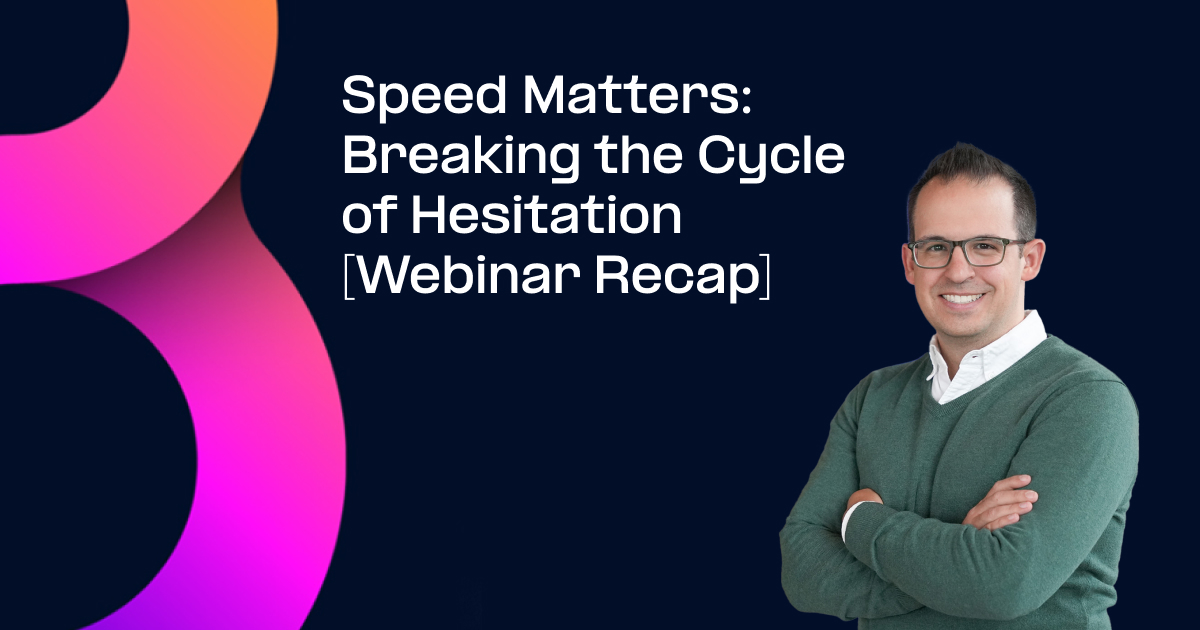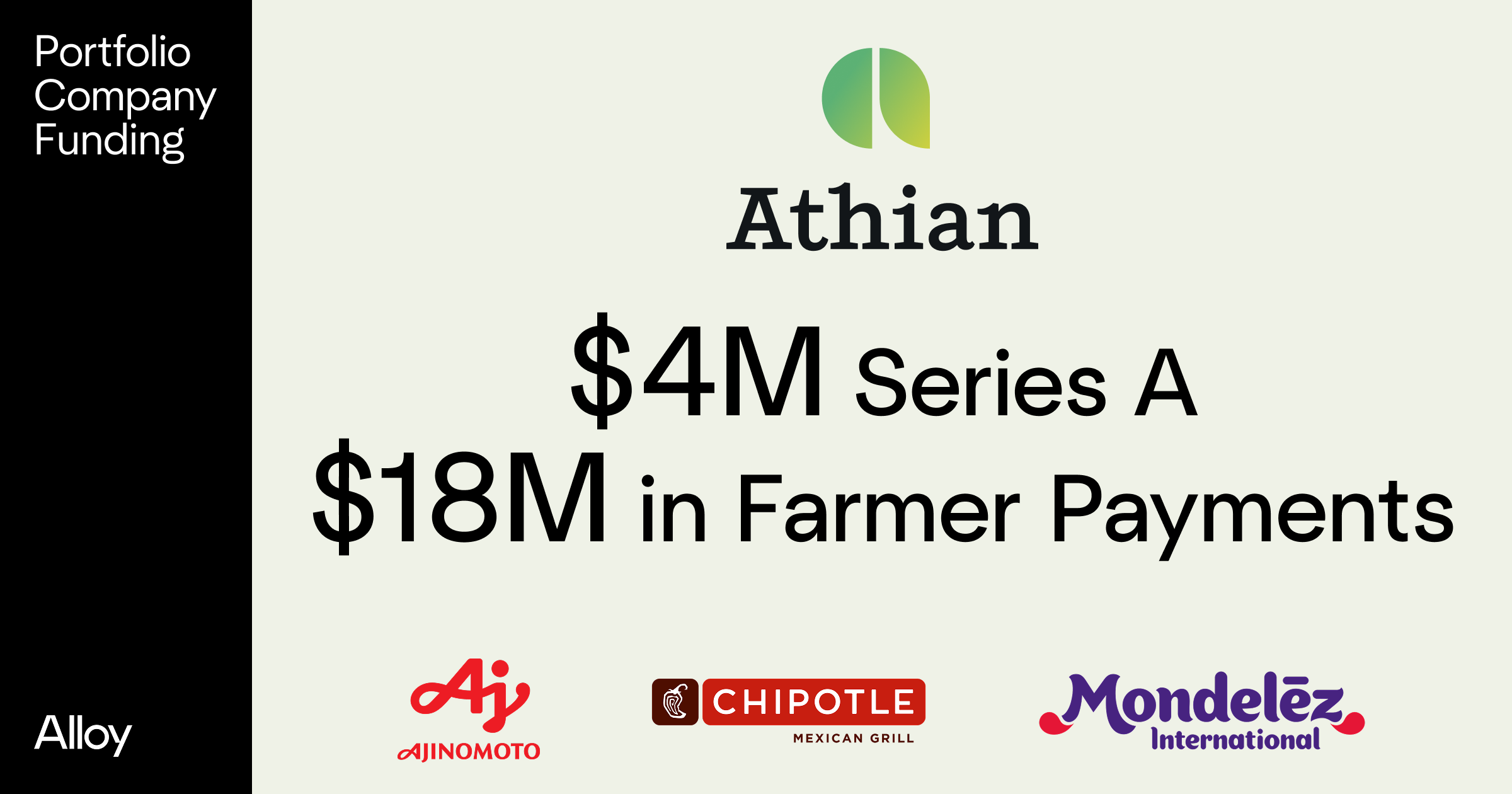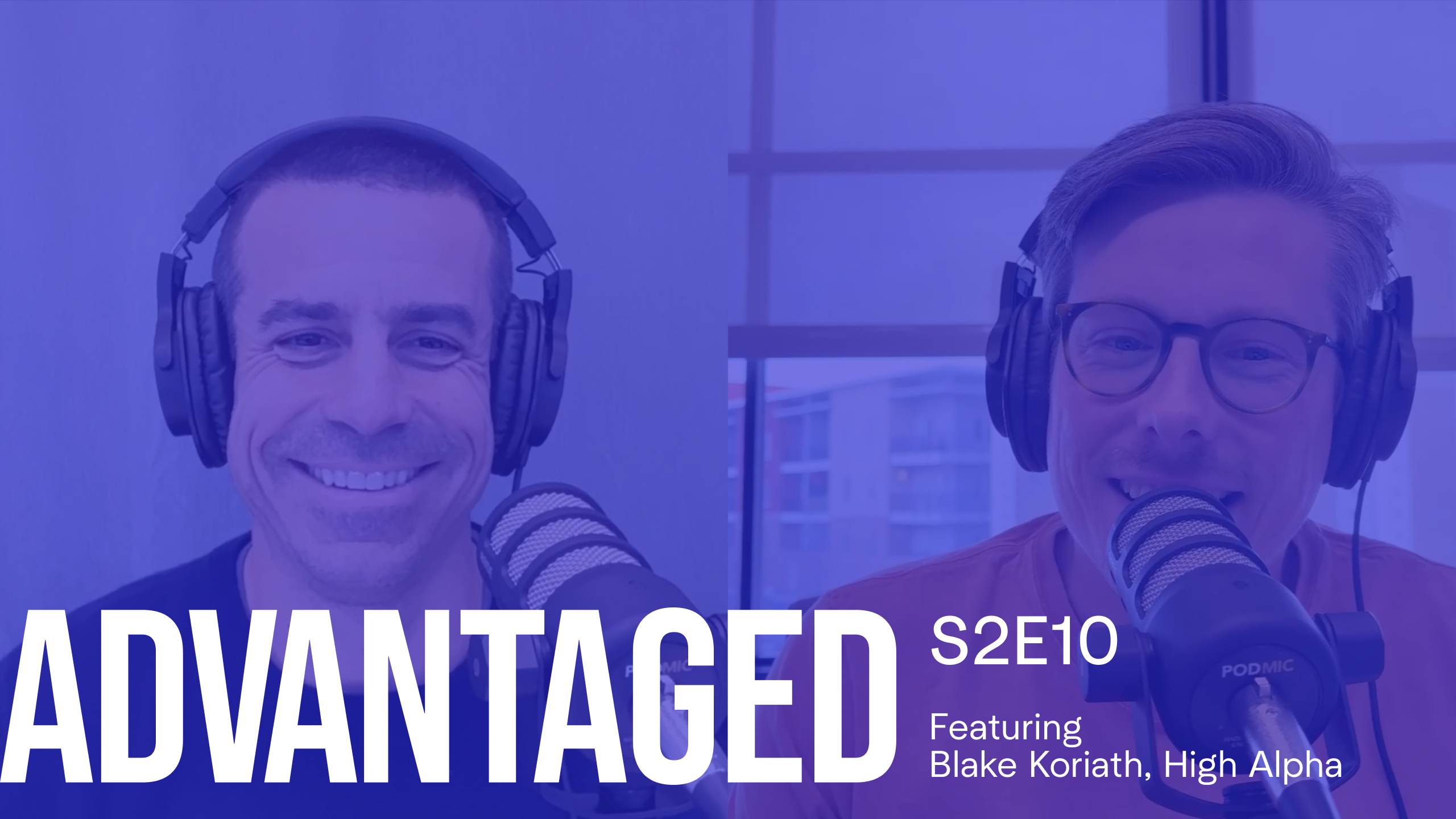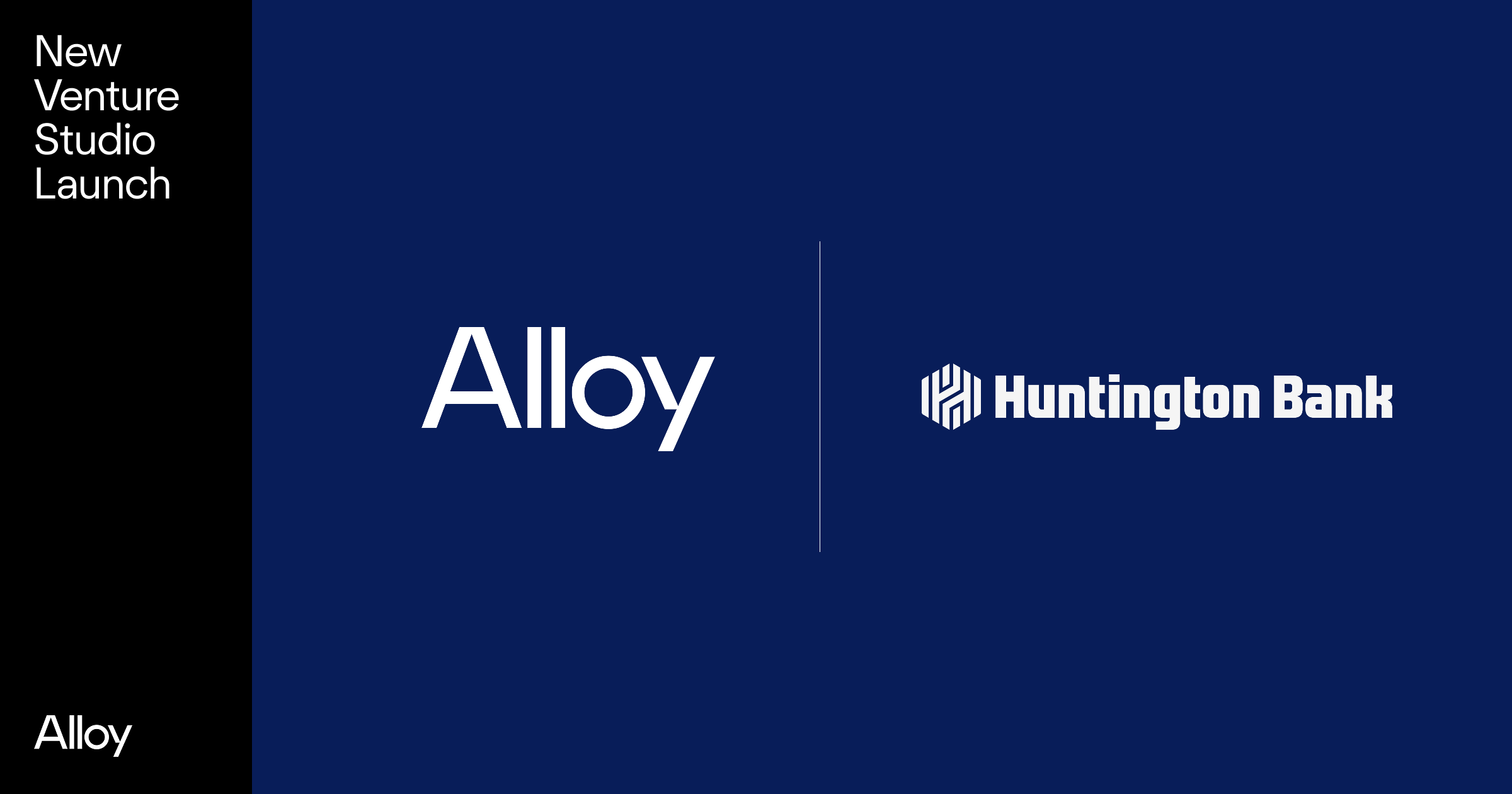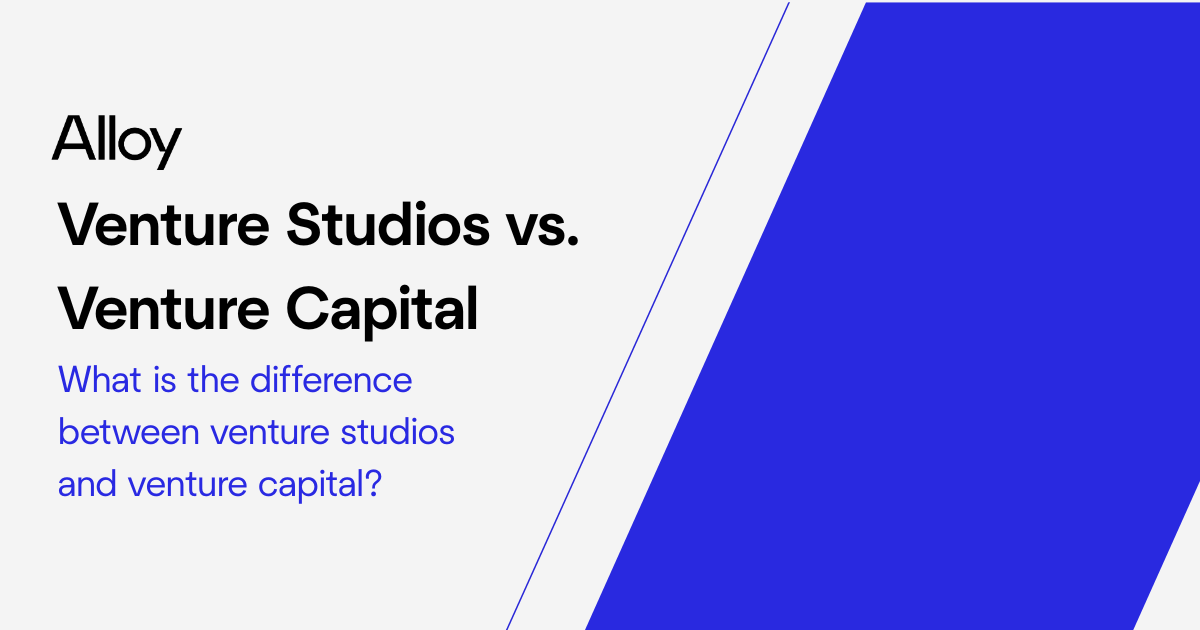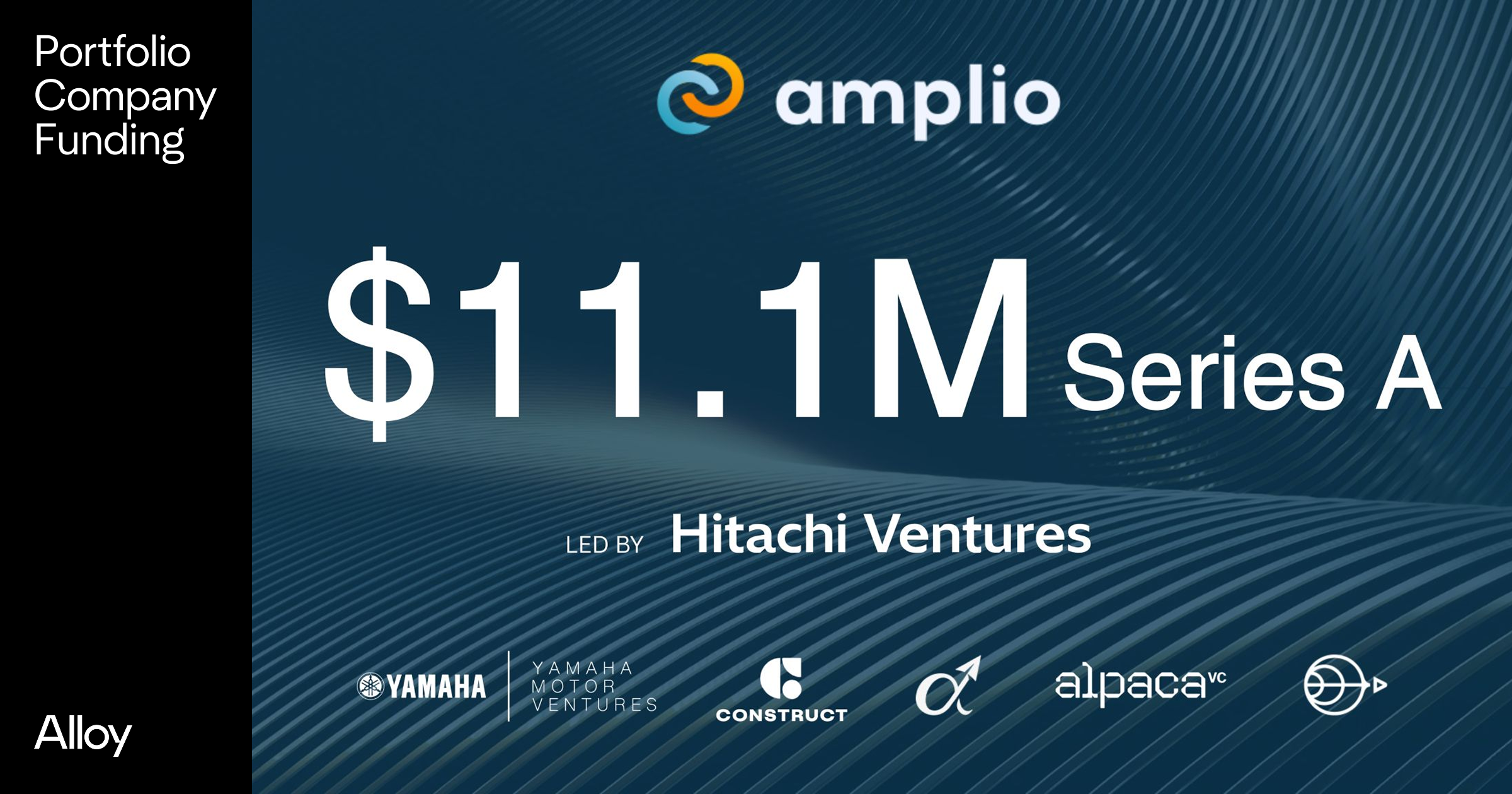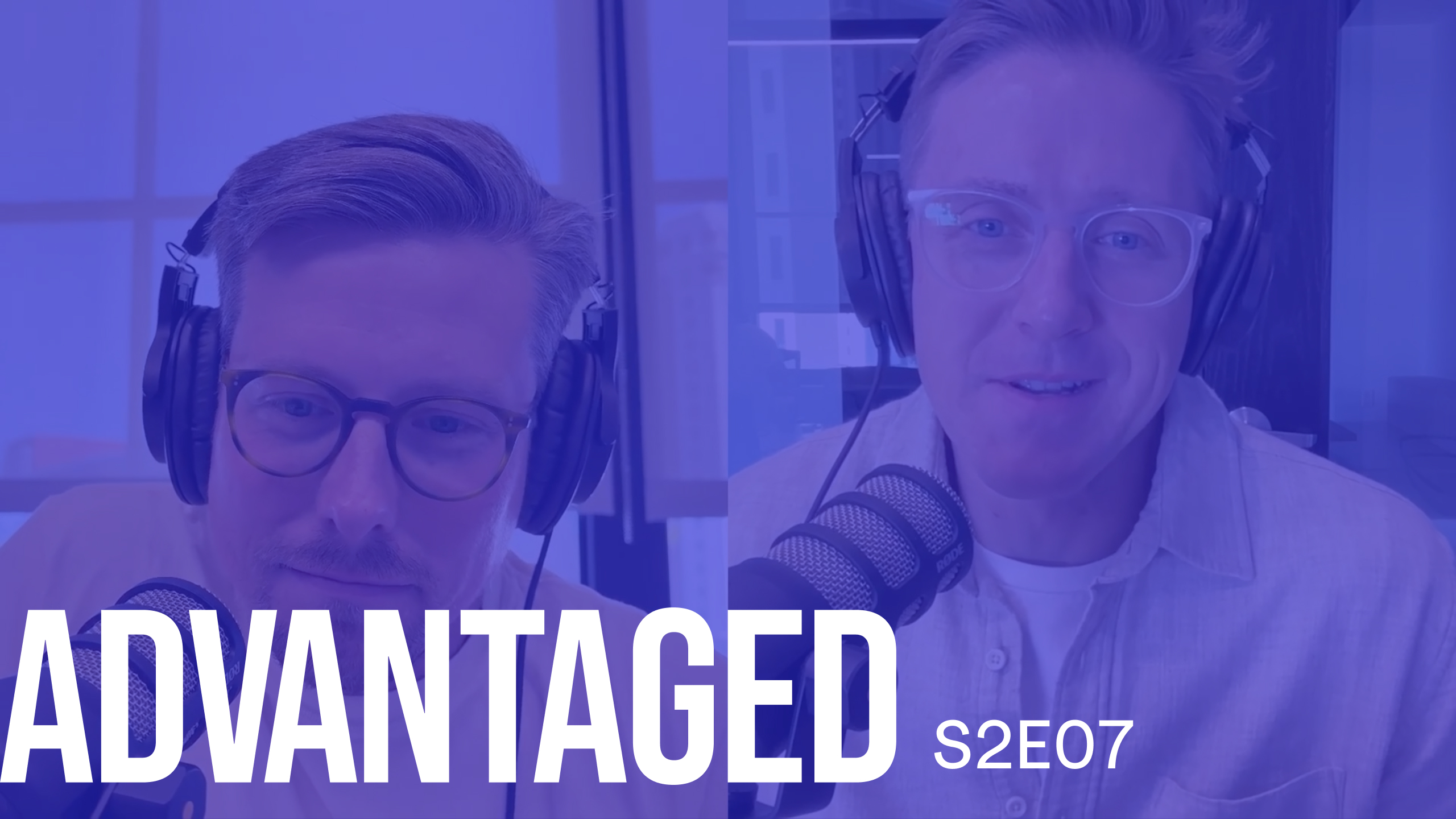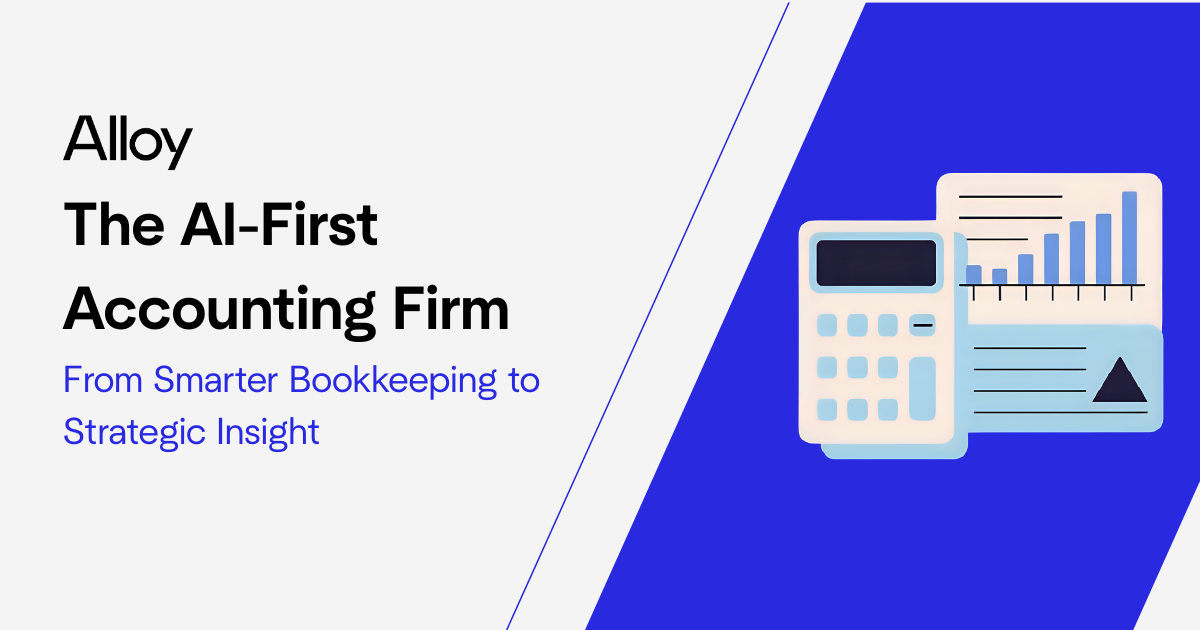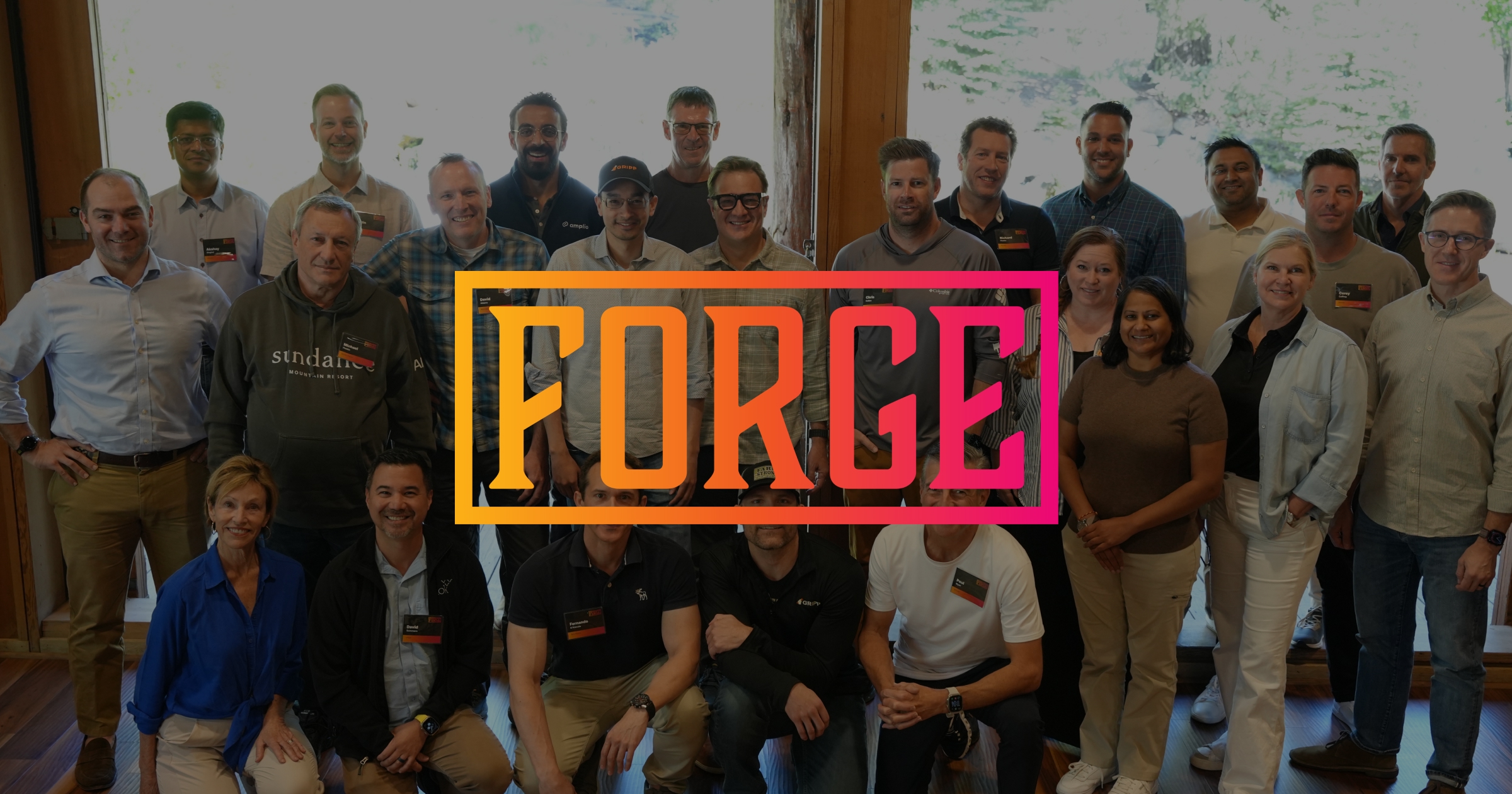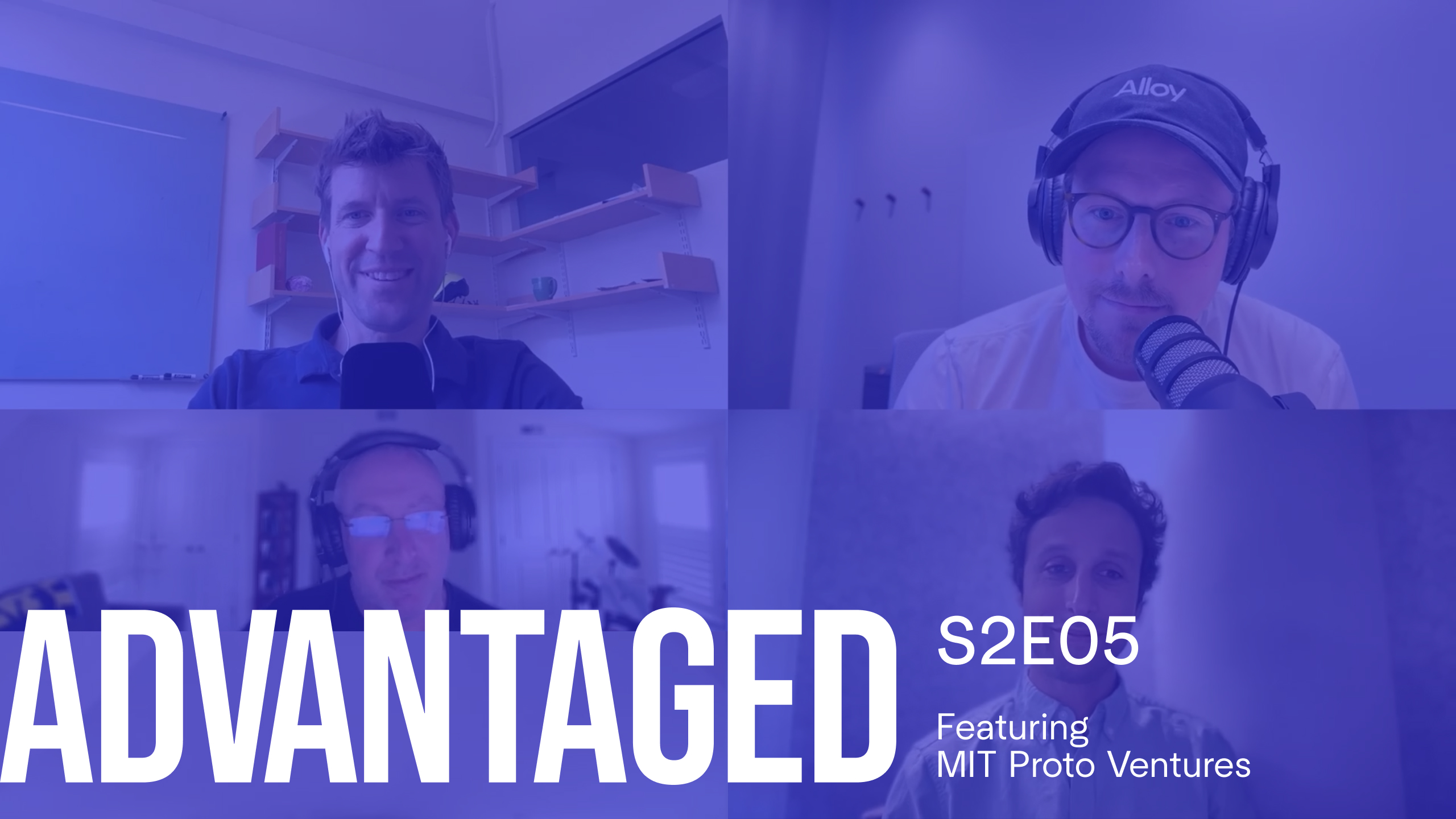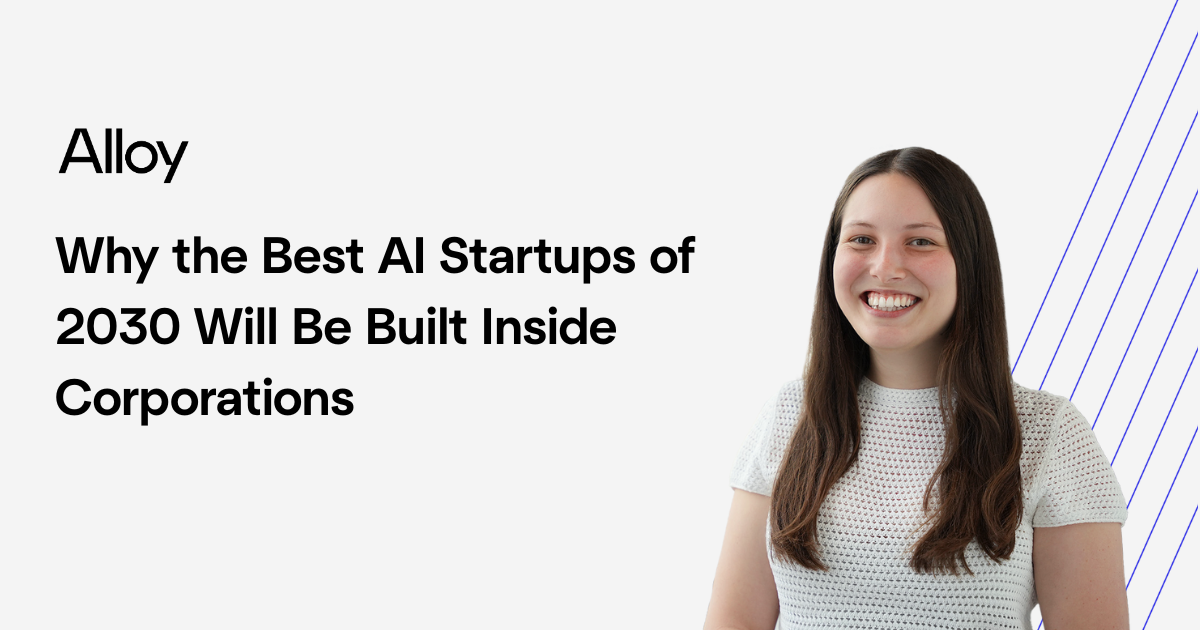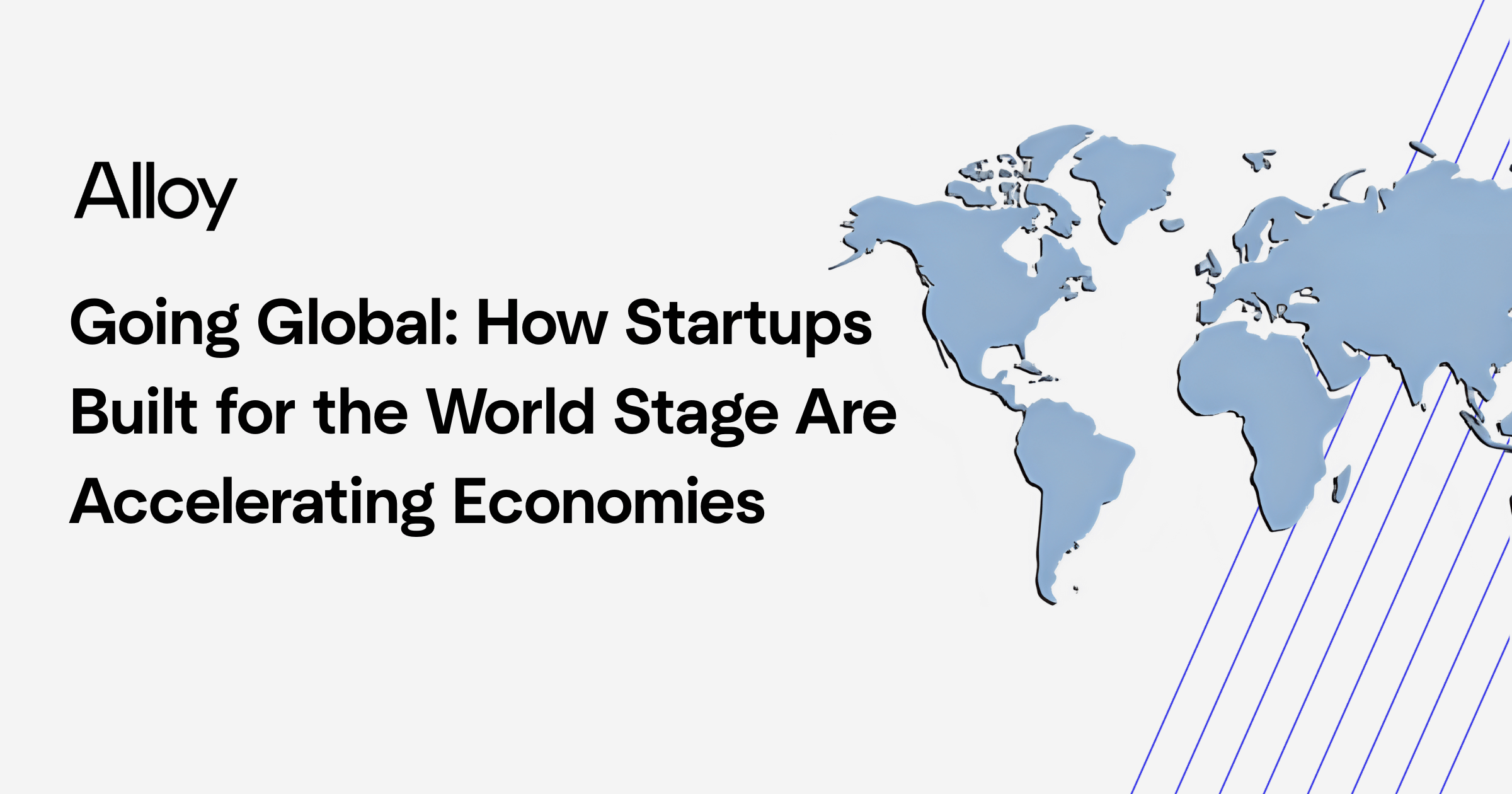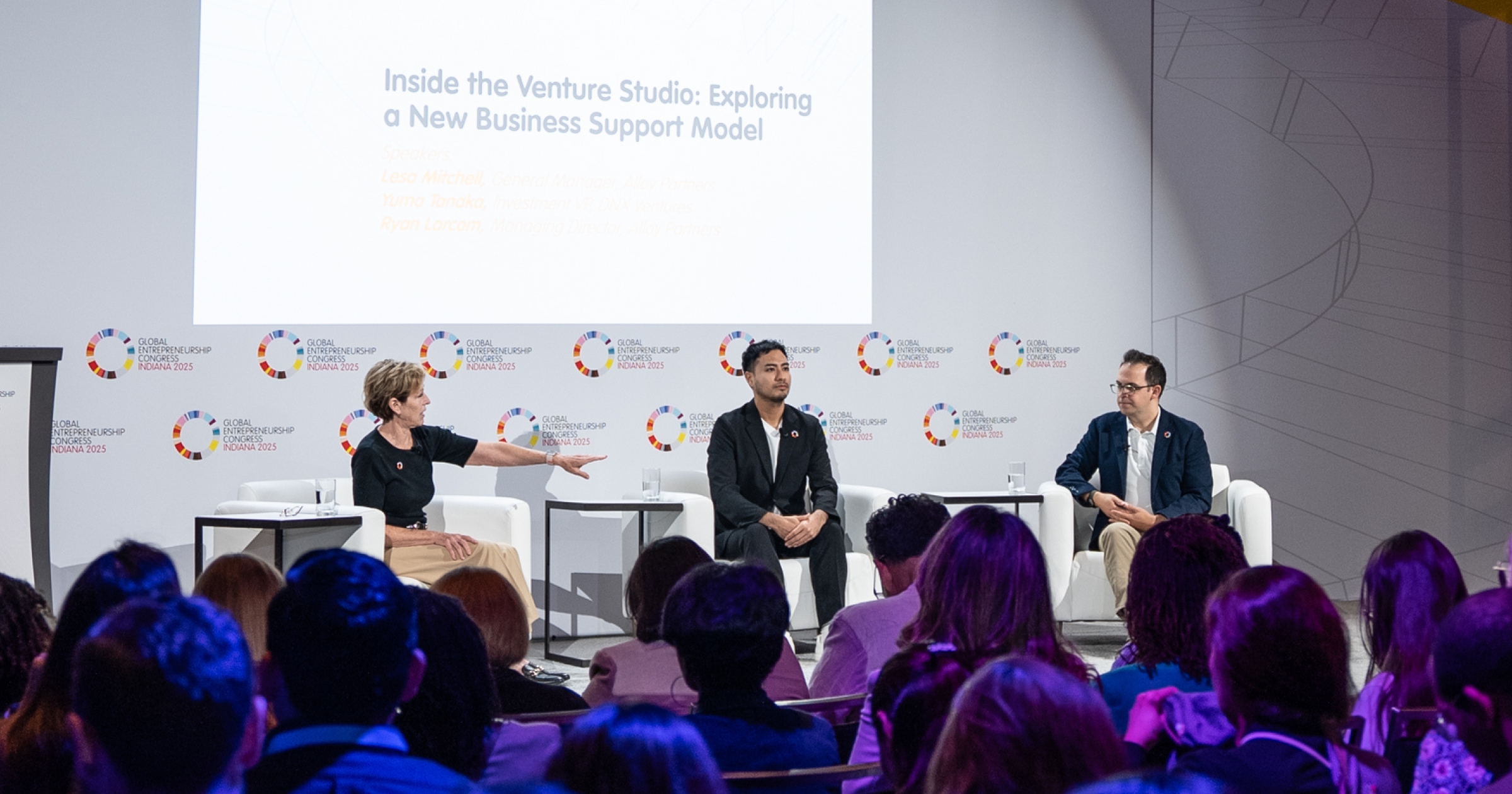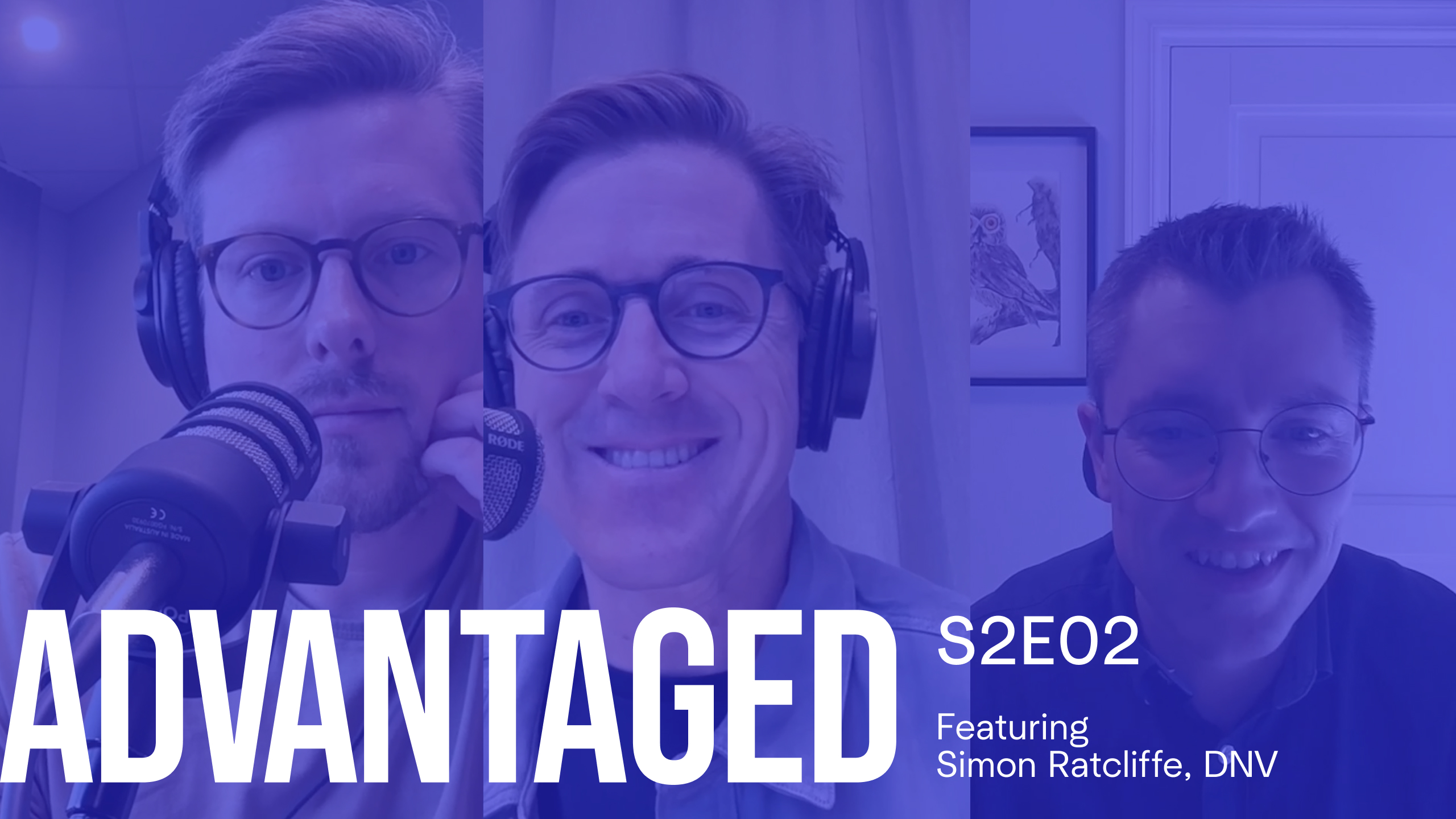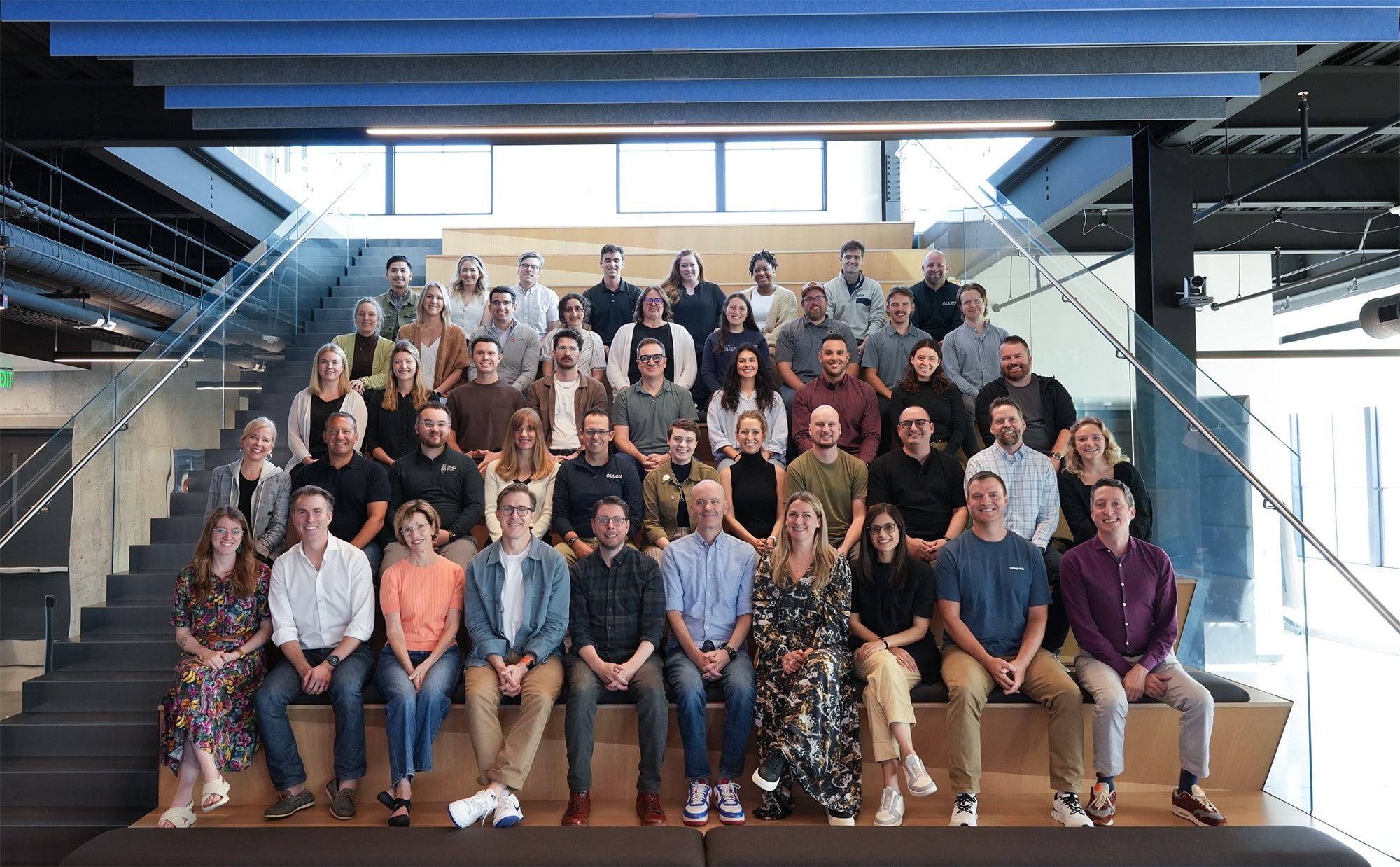A strategic partnership (and investment in this case) at the earliest stages can define a startup’s trajectory—shaping not just capital access but the fundamental path to product validation, go-to-market traction, and partnership value. On this episode of Advantaged, I host a candid conversation with a good friend, Ben Person (Co-founder & CEO of Tenon), and Shuchi Rana (Global Head of Whitespace Intelligence at ServiceNow Ventures) to explore how aligning corporate and startup interests can accelerate company-building from day one.
Guest Bios & Links
- Ben Person: Co-founder & CEO, Tenon (LinkedIn)
- Shuchi Rana: Global Head of White Space Intelligence, ServiceNow Ventures (LinkedIn)
- Host — Drew Beechler: VP of Marketing, Alloy Partners (LinkedIn)
Key Takeaways
- Early strategic investments and partnerships do more than inject capital—they unlock focused product input and privileged access to established go-to-market channels.
- Deep alignment between startup teams and enterprise sponsors accelerates everything from product co-development to scalable, repeatable sales.
- Clear communication, focus, and mutual trust are required to maintain speed without losing sight of strategic priorities.
- Success is measured in expanded market reach, faster product launches, and joint wins that neither party could achieve alone.
Listen or watch the episode below:
In This Episode
- The story of Tenon’s formation via a white-space opportunity identified in the ServiceNow ecosystem
- How ServiceNow Ventures approaches both strategic and financial value, and the “alignment-first” mindset that drives portfolio success
- The unique product co-development model: real-time feedback loops, shared code bases, and getting to market fast through enterprise grade infrastructure
- GTM acceleration strategies—what it means to “sell with” rather than “sell to” and how a platform partnership can transform market access
- Breaking through common pitfalls: navigating large enterprise processes without losing startup agility
- Practical advice for founders, corporate VCs, and anyone seeking to build durable, scalable collaborations
Want more perspectives on venture building, venture studios, and startup traction? Subscribe to Advantaged wherever you listen to podcasts.
Transcript
Below is an un-edited transcript from the podcast episode.
Drew Beechler: Welcome everyone to Advantaged and Alloy Partners podcast. My name is Drew Bechler. I'm our VP of marketing here at Alloy Partners and your host of Advantaged If you are unfamiliar, we are a venture builder. We partner with leading organizations and entrepreneurs to co-create advantage startups and venture studios that can unlock growth and transformation.
And on the podcast Advantaged, we interview corporate innovators, founders and investors all around venture building and startup corporate partnerships, and finding strategic alignment. We are telling the stories of how corporates and startups win together rather than being seen as adversaries. And so here today, we have a really special episode we're joined by two guests, Shuchi Rana, the Global Head of White Space Intelligence at ServiceNow as part of the ServiceNow Ventures team and Ben Pearson . co-founder and CEO of Tenon. thank you so much, both of you for joining me today.
Shuchi Rana: Of course, yeah. Thank you for including us.
Drew Beechler: we would love to just start with a very quick intro on both of your backgrounds and then we'll get into telling some of, the story between.
ServiceNow Venture is in Tenon and how both of you operate.
Ben Person: Yeah, glad to Drew, thanks for having me. Shuchi, thanks for joining as well. Excited to have a chat with you today about our relationship and our businesses.
My background so Ben Person, the CEO and Co-founder of Tenon started this company in 2022. I worked with John Ball. And ServiceNow around a strategic direction to head into the CRM market. We'll talk more about that today. But my background, I've worked with ServiceNow, and partnered with ServiceNow for over 13 years.
long time relationship there. I was a CMO actually for a ServiceNow build partner prior to starting this company, which is what launched me down the path of building a marketing automation software company on ServiceNow.
Shuchi Rana: Thanks for including me and Ben. It's been a wonderful relationship and partnership with Tenon and yourself and the team. So my background, I've been in tech for longer than I care to admit about 20 plus years. it's been, the career trajectory has been a little non-linear and non-traditional.
I started out as an operator. Worked with several startups and touched almost every business function finance to fundraise, hr, a couple of acquisitions, and then moved to sales, marketing kind of strategy. I feel like I've done everything other than coding, which thankfully is so easy now that I can definitely check that off the list as well.
Currently with ServiceNow, my second CVC role between startup and the CVC world, I dabbled. some impact endeavors including criminal justice and with the UCLA, justice work group at UCLA and the entire Recidivism Coalition. And then stumbled upon an opportunity, my first CVC role with SAP.
And I was really fortunate to be a part of an early team that helped define the playbook of value creation that's possible for both startups and the large enterprise via strategic fund or an innovation program. So glad to be here and excited to dive deeper.
Drew Beechler: I love that. thanks again for joining us. And maybe let's start with you tell us more about the ServiceNow Venture's strategic vision and what does. Ventures at ServiceNow look like. Why are you investing and engaging with startups?
Shuchi Rana: ServiceNow has been investing for about 10 years now, but openly committed a billion dollars about two years ago to invest in technologies that are in some shape or form aligned and adjacent to what we do and our thesis.
SI would say is flexible enough and absolutely informed by what is happening in the market as it relates to the key strategic priorities for ServiceNow, and of course validated by our colleagues within the ServiceNow ecosystem. It serves a lot of different purposes where we're helping bring in an outside in perspective to and help find alignment and adjacency.
And I think we'll talk about it later in the conversation as to how our portfolio is able to partner and perhaps leverage ServiceNow as a platform from a growth and scale perspective.
Drew Beechler: Jump into that a little bit more too specifically, what does strategic alignment mean to ServiceNow venture?
Is that a practical level? I think and maybe even from your experience at SAP too, for most CVC teams, the financial return is very minimal. And so oftentimes there's a lot, the mandate is around strategic alignment and how do we drive kind of value.
Beyond even the return from a financial perspective. So I'm curious, what does that look like at ServiceNow? What does strategic alignment and value look like from that perspective?
Shuchi Rana: Yeah, I would call us a mix of both strategic and financial, because of course when you're deploying capital, you absolutely are looking for, financial return as well.
But financial return for us can be quantified in a lot of different ways. There is opportunities for exits of course, but at the same time, we're very intentional in spending time with our startups to make sure, and this happens even before we invest our lines of businesses get involved to identify.
Where there might be opportunities for partnership, where there might be gaps that can perhaps be filled with our startup and our portfolio. our lines of businesses get involved as a team. We make sure we get an understanding of what lies on the. Roadmap. And I think it's a big question for a lot of enterprises to be able to understand what are we going to be building versus where there might be opportunities to partner or invest.
So we take all of that into consideration and there's a lot of folks within ServiceNow, the broader ServiceNow ecosystem I would say, that get involved in identifying and to what the top of mind priorities are
Drew Beechler: Yeah, that's such a good point. It's quantifiable.
It may not be the direct IRR from the check into what, the exit return looks like. But the quantifiable value is gonna be seen in many other ways within the organization whether that's on product roadmap or expanded business units and market opportunities. there's lots other avenues there too.
And maybe, I think hopefully this. Segues well into the Tenon story a little bit, Ben. tell me more about what is Tenon and the founding story in particular of Tenon and that unique nature of launching Tenon with High Alpha and ServiceNow from, day zero ne negative one, almost, really even.
Ben Person: Yeah glad to dive into that you think about, Shuchi obviously, we just talked about a little bit about this white space. I was working at a ServiceNow company. I was a CMO, and this white space came up around marketing and marketing automation being needed as part of ServiceNow's broader and strategic CRM vision and strategy. So what, where a little bit of our founding story. So as I mentioned, I was a CMO heard about this white space opportunity to build a company. And build a business around a marketing cloud marketing automation solution built on the ServiceNow platform.
So I pitched this idea to High Alpha based here in Indianapolis. Obviously would love to have them as investors and strategically on our board with their background from ExactTarget and their background, building a marketing cloud themselves and selling it to Salesforce. And obviously wanted ServiceNow Ventures and ServiceNow to be an investor.
In the business as well. And so we pitched this to ServiceNow Ventures with a strategic advisor, John Ball who shared with us the white space vision and the CRM strategy. So for me that was the goal was to get two strategic investors to back us to help us as we built this business.
One with the marketing Cloud expertise, and two, with the strategic relationship at ServiceNow that can continue to help us open doors and. help us drive as we need to partner strategically with the ServiceNow product team and the ServiceNow field. So Tenon, if you're not familiar with that term, by the way, Tenon is a term, it's actually a woodworking term.
My co-founder Ben Ivers is a woodworker. But Tenon is a woodworking joint connecting two pieces of wood together without screws or anything else. It's a strong long lasting connection. And so for us, we're connecting. Marketing with the enterprise and marketing that's never worked on ServiceNow, now can work on ServiceNow as part of our solution.
And so that's what how we came up with the name and built the business around. We took our seed round with ServiceNow High Alpha in December of 2022. And then we raised the series A in Q1 of 2024 to accelerate our product roadmap and align with the announcement in Q1 this year.
Of ServiceNow entering the CRM market. So that's just a little bit of our background, drew. And like I said, Sui, it's been an amazing partnership and, you're opening doors for us with the C-Suite at ServiceNow with other connections, which has been incredible accelerant in our business.
Shuchi Rana: Yeah, absolutely. Just to add to that, I think Tenon is a great example. How we've been able to jointly enhance, I feel like our product capabilities and go after a certain segment of customers that definitely can truly benefit from what Tenon and ServiceNow jointly have to offer.
Drew Beechler: such a great example at Ben of seeing.
White space in the market and opportunity in the market, an area for, and just being deep in the ServiceNow ecosystem and seeing kind of this opportunity to build a business and knowing the strategic value and relevance to ServiceNow as well and figuring out how can we leverage that and sit in the gap there and is I think, really valuable.
And that's what kind of gets someone like a ServiceNow interested and involved at even the earliest of stages. I'm curious, Ben how has ServiceNow's input influenced Tenon's early product roadmap as well? Both in you mentioned it, their own product roadmap as their input and things
Ben Person: Yeah, this is a unique very unique. Product development model I've never seen before in like semi 13 years working at the ServiceNow. We had the opportunity in partnering with John Ball's head of CRM, a aj. We actually co-developed our product with ServiceNow, which I've never seen before.
Meaning we're in Preiss code, they're in our PREISS code, we're discussing what we're building, why we're building it. They're sharing with us things that they need built. One of the common questions I get when talking to investors and even ServiceNow, is why did ServiceNow not build what Tenon's doing?
Why is there a company built around this? And the short answer is speed to market and subject matter expertise. Certainly for us we aren't bound by some of the overhead or product red tape in building product. So we can get product built really fast and at a high quality.
And we can also do it with ServiceNow's goals and objectives in mind is, like I said, every week we actually meet with ServiceNow's product team and are building literally code together in a shared environment, which is just amazing. That's some of the big value we've seen drew in the relationship as we think about how strategic we are from a product development perspective.
Drew Beechler: I think that's such a good example on the product side. I think also, I've seen just firsthand, Ben, knowing you and Tenon as well, maybe shifting gears to the go to market side of the business as well. That has also played a tremendous advantage having that relationship.
both inside the ServiceNow ecosystem and org, but also just even in how Tenon shows up in the market and I feel like you're punching way above your weight class since big time, day one. Yeah. So anyway I think there's a handful of ways, but maybe just on the go to market side in particular, how has that impacted your business in a positive way?
And then sh you too, feel free to layer on either in the Tenon example or in others you see as well
Ben Person: go to market, the go-to market side has been tremendous value to us in partnering with the ServiceNow field.
All of our sales drew our sell with. So we go into the field with ServiceNow reps. We demo together, we sell together, we act as one selling unified group, and that's across the 2000 plus ServiceNow sellers. And so not only does that give us expanded reach. Into accounts we wouldn't have ever gotten into.
We're it's unbelievable. We just closed the account outta Germany just a week ago. We closed an account outta Italy a month ago. Like we're starting to see international traction. We wouldn't have done that on our own. We would've focused here in the US likely or US and Canada. But we've been pulled incredibly pulled internationally as well.
And we wouldn't have, those doors wouldn't have opened. So again, three, two to 3000 sellers and solution consultants at ServiceNow. We're in the ServiceNow CRM first call decks. We're in their demo environments. All of their solution consultants can demo Tenon as part of their CRM strategy.
Like we're baked in the cake as we think about CRM, because if they go up against Salesforce or they go up against another competitor, they need to be able to show marketing, sales and service to compete in the true end-to-end front office. And so that's been an incredible value in the fact that doors are opening, relationships are already built.
And we can go help them, help ServiceNow, by the way, land new Logos, we landed the largest mid-market net new logo for ServiceNow in 2024. We're hopeful we can do something similar this year as well. But like I said, not only are they opening doors for us, but we're helping win business that might not have been able to win without marketing part of that solution.
Shuchi Rana: Yeah, absolutely. And I would say again, Tenon such a great story of having found that success and traction within the ServiceNow ecosystem, which is a 28,000 people company now. So it's not easy to navigate the a large enterprise like ServiceNow. But I think Ben and team have done a great job and.
What we're trying to do with the rest of our portfolio as well is come up with that playbook, like best practices, whether it comes to building custom custom BD plans, sitting down with them, understanding what's top of mind priority for the startup, and how does that align back with the larger enterprise and finding those key stakeholders.
So I think it starts with identifying where the back to the product gaps. Are who the key stakeholders within the product bus are that they should be talking to, understanding what that integration path looks like before we can even talk partnership, which I think Ben has done it all. So Ben, I might bring you back to talk to startups as we're setting up this playbook But yes, so there's several different steps. So there's the product integrations, then getting on the marketplace. Then also a lot of blocking and tackling. So doing maybe customer joint customer mappings. Identifying who the key stakeholders on the go to market side are, whether it's partnership teams or account executives for any specific accounts.
And just helping startups navigate the entire landscape.
Drew Beechler: I love all of that and the sometimes the best Support you can bring is helping some of the blocking and tackling, just understand kind of our systems and processes. I would love to hear maybe from both of you this balance we hear oftentimes between, startups, agility and large corporate Process, very process oriented. How do you balance those sitting in the middle there?
Shuchi Rana: Yeah.
Drew Beechler: And how you, have you seen it work really well?
Shuchi Rana: I feel like I'm an entrepreneur at heart, so switching from the startup world to a large enterprise, definitely parts of it were slow for my preference, but over time you understand that there's a reason for it, right?
Yeah. So there's content. When it comes when it's a large enterprise, there's a lot at stake. So you have to be thoughtful about everything that you do. And when a startup is building in the enterprise space, I feel, and correct me Ben if I'm wrong, but there's this expectation that things will take a bit longer.
So you go in with that expectation of worked with quite a few enterprise startups in the past. So just finding. That balance between understanding the urgency that comes with being a startup and also the responsibility that comes with being a large enterprise, right? Finding that balance is key.
Understanding the context of why things are done a certain way. And for roles like ours, I feel a good balance between the both. Between both, right? So the urgency and the responsibility part, and someone who can truly. Be the navigator and the translator and the intermediary between the two.
Is key.
Ben Person: Yeah, if you think about, building on an enterprise platform like ServiceNow versus sort of building it on our own speed and agility being built on ServiceNow didn't slow us down at all.
If anything, it accelerated us. We didn't have to figure out. The architecture, the data centers, the security, compliance the 50 things that have to be done in addition, ServiceNow has already solved those. Our first product we built and launched to market was for marketing work, allowing marketers to work in ServiceNow.
We launched that in three months, so that, that was from the founding in mid-December to literally three months later. In March, we launched our first product and we and this
Drew Beechler: And this was pre-Claude and ChatGPT, might I add .
Ben Person: It was. And so you can't do and by the way we had it in market and we had two customers on the product in three months.
So I don't know how, so saying is service being built on ServiceNow? Does it slow you down? Is there too much corporate red tape? There absolutely is not. If anything, it, I mean it did, it accelerated. Our ability to get a solution to market in a proven market that was already in 85% of the Fortune 500.
So customers already trusted it. CIOs already saw it as a strategic platform. Like we can walk in the door and have badges. We could wear that. Basically said, we already trust ServiceNow. You're built on ServiceNow and certified by ServiceNow. We already trust you as well. And so that is. Why we chose to build on ServiceNow is, like I said, this is the second company I've been at that's been built on ServiceNow.
I saw how that played out there. That is an accelerant to a business like Tenon is the fact that we have, 3000 ServiceNow sellers. We have amazing product teams we can work with to build the right product. And like I said, accelerate revenue coming in the door.
Shuchi Rana: Yeah. And just to add to that, I think ServiceNow definitely is an exceptionally agile company. When it comes to continuously innovating both our own product suite and having found that perfect balance of being able to partner with an external ecosystem I think it's definitely coming from now having been a part of a couple of large enterprises, I can definitely the pace at which we move is unprecedented.
Yeah.
Ben Person: And Shuchi. You have Alex Douglas running your build program there. Courtney Miles works for her team, and Jack Klopfer was assigned to us from day one. He's actually based here in Indianapolis with us. So they even put a resource right in city with us. Absolutely. You've actually, when you talk about Agile, you talk about how you help startups like this navigate by you investing, and that was an investment that ServiceNow made in putting a dedicated resource to Tenon from ServiceNow. That team has also helped us open doors or knock down barriers or get us to the right people and connect dots that we would struggle or take, weeks to find.
Like I said, you've not only as a company have invested, but you've really set an organization up in an agile way that helps startups like us move really fast. So
Drew Beechler: I think there's such a stark difference I think sometimes with some of the partners that we work with at Alloy that are not ServiceNow's, a tech company a software company. We work with companies that across kind of industries, many different industries, many that are not tech companies.
And so I think There's a very interesting dichotomy almost here between software like platform companies I would call them, and non platform companies where I don't think. There, there's just not this ability to have this much integration.
for a very early stage startup with non platform companies, almost curious, there are many platform companies as well that are not this easy or it is not go this successfully too. And so I'm curious kind of what has made the ServiceNow platform strategy so successful in this case, do you feel like, is there anything that stands out as to why the ServiceNow platform strategy has worked so well?
Ben Person: I'll give you my perspective, drew. It is, it does start fun fundamentally with the way the platform has been architected and the way that the platform's built to allow companies to build on it.
So you look back to Fred Luddy days from Indiana, by the way. When you think about what, how Fred built this, when he built this business of ServiceNow, originally as a developer, he said, I'm gonna build the first app, which is it service management. Frank Slootman came in after him as CEO and he said let's expand this into finance, into hr, and these.
Line of business workflows. And so you started to see that, the way that Fred built this platform was truly is a single architecture, single data model single solution that can be expanded to workflows outside of, where they started, which was it. The reality is that architecture, by the way, wasn't built.
Yes, they've acquired companies, but even in those acquisitions that they've made, even the recent ones, they've replatformed, they've kept the same code base, same architecture, look at competitors. Many cases don't do that. They buy tech and they leave it alone. I worked for a large tech company as well, and you saw how they buy and leave alone.
The fact that ServiceNow has always stayed on that course. I met with Amit Zary here a couple weeks ago. Thank sui for lining that up. And he talked about still that strategy exists today from a chief product officer standpoint is. We're gonna have the right architecture, we're gonna keep that right architecture and protect it, because that gives ServiceNow and companies that build on ServiceNow a strategic advantage.
Drew, I'll give you a specific example. Talking to a large financial institution out of Japan and they use Salesforce and they use Adobe Marketo for marketing automation. And because of that architecture, that disjointed architecture, integrated architecture, it takes them seven business days and they have to pay $10,000 to an si to go and connect new data points between those two platforms.
With ServiceNow, we showed them that in 15 seconds you can do that and have that data immediately available, and doesn't cost you a penny. And that is the architecture alone and the way that they've developed the platform to allow companies like us to build product certified product no different than ServiceNow builds their own products is how and why it's been successful in building applications and businesses on the platform.
Absolutely.
Shuchi Rana: I think it's the people. It's how the system is architected. It's also the, our ability to move like a startup, even though we were about 30,000 people almost. It's just the agility that comes with being ServiceNow. It's incredible. And starting out in it now, we touch almost every business function within an organization.
So whether it's HR to what Ben said, customer workflows, employee workflows, it workflows, and then creator, like low-code, no good. So yeah, it's definitely a true platform play.
Drew Beechler: Do you have any insights or lessons on. Why ServiceNow has been able to keep that agility and the entrepreneurial, culture, with 28,000 employees?
Shuchi Rana: Good question. I think at the end of the day, it's people. It's the tone that's been set at the top and, yeah, we have to maintain that agility. We have to probably one of the few companies that we were the intelligent platform for business transformation to now to then becoming the AI first to now with ambitions to becoming AI native.
I think it's in the last two, three years. So it takes a certain mindset
Ben Person: Yeah. I agree. It's
Shuchi Rana: been wonderful to, to be a part of that and everything that I get to learn every single day. It's a pretty incredible organization.
Ben Person: It definitely starts at the top Shuchi, seeing what Bill McDermott does every day.
You read his, if you read his book, you hear about his background. He is scrappy. He is humble and hungry. He is, he embodies what Fred set out originally as the culture of the business. But it continues and definitely you're exactly right.
The business operates like a startup even today in such a good way that helps us. So
Drew Beechler: I'm wearing my fanboy hat actually right now, but Bill was on the acquired two podcast, I dunno. A couple of months ago though, talking a lot about selling in his early career.
Being a bag carrier, going door to door in New York that I'll probably link this in the show notes, but that episode was incredible and yeah, you can just see it. Yeah. To your point, Ben the hunger and just is there from the top, which is really something special.
Ben Person: Yeah. Yeah. Him rolling that Xerox in to get a sale was quite a story in the book.
Shuchi Rana: Sure.
Ben Person: And I think
Shuchi Rana: he still operates that way. Yeah. And that kind of trickles down to every person within the organization, that mindset.
Drew Beechler: Yeah. And that's a it's apparent Yeah. That he still operates that way and kind of the whole company. But I was gonna ask a question of like, why take the approach of investing at the founding of a company, so early in a company's journey, like with Tenon
Ben Person: I think when a startup is coming in, filling a really critical white space component that one of the executives across one of your business units requires. I think those are ones where it seems like you're opening the door but it feels like those are strategic in nature and you do invest.
in general cases, you are now later stage being later. But where there's strategic white space components that are critical to the long-term success of ServiceNow. It feels like those are ones that you jump on at early startup days.
Shuchi Rana: and just to add to that, I think there's learning that happens in both sides, right?
A small startup can definitely leverage the strategic buy-in and the platform from a growth and scale perspective. And also, I guess both roadmaps get defined when it's something that the enterprise is leveraging the startup for. Then I think it's it helps. Kind of align.
Both priorities on both sides, both the startup and the enterprise. And there's more time to build trust within both the ServiceNow ecosystem and perhaps our our customer base, which I'm sure Ben can speak to.
Ben Person: For sure. Shuchi, like you say, when you invest early. It does build the trust when I do reach into the product teams at ServiceNow, it does build trust When I reach into your selling team and explain to them that you're also an investor in us it does change the dynamic and the trust and the relationship.
So yeah, for sure. That's a big validator for us as we as we worked with those kind of two sides of main sides of your business.
Drew Beechler: And for better or for worse, and I think in your case Ben, it's been, you would say it's for better the earlier stage companies as well. it's so much easier to help influence and shift, or move a, an early stage company than a series C company or their roadmap, even a, series C or series A company.
It's so much easier to change product roadmap to be more nimble. And so even there's that kind of aspect of it's, a thousand times easier to move a little tiny startup than a large, fortune 500 corporation. It's, a hundred times easier to move a tiny startup than a series c company.
And so you see that to Ben's point, how strategically important and valuable and quick and nimble. And almost experimental as well. Do you need to be in that area can maybe make the difference on what the value is on hyper early stage versus later stage two?
Shuchi Rana: and I think it's the entrepreneur in me talking, I feel like it also constantly validates like if you have a large enterprise that you can validate and their customer base though, to your point of being able to iterate in time.
Drew Beechler: the name of this podcast is advantaged and a lot of what we talk about in the company is companies that are built from day one or that have these kind of strategic partnerships with large corporations have just such an unnatural competitive advantage.
Because of the big company's breadth and scale and size and customer base and relationships. That they have within the market. They have the ability to move markets where you're a tiny startup, yes. You maybe can be more nimble, can be can bend the rules more, or, can move quicker than a larger organization can.
but at the same time you miss out on some of that. And so that's where our belief is too, where there's this uniqueness of, I think we've talked about it all. All they hear today of that true competitive advantage that comes when you have this really tight relationship.
what makes these startup enterprise collaborations and partnerships work so well, like they have with Tenon in ServiceNow? Or maybe where do they fall off the rails? Where do they not work as well? What are some of The warning signs or red flags even that it might not be a good partnership.
Shuchi Rana: where I feel like buy-in and sponsor sponsorship at the highest level is key. And to be, have that be baked into the strategic plan of the organization and a clear mandate to at least the leadership team that this is something, open ecosystem is a strategy that we're going to be pursuing and be intentional about.
I think those are some key things for a. Program like ours or a fund or an innovation program to be successful. That's like the key foundational things that you really need. And then of course, building on that, building that playbook, maintaining key connectivity within the organization. That's also a very intentional process to make sure people are informed that this is something that you're doing.
And there might be. Strategic relevance and opportunities for us to partner on. So some key stakeholders, just like identifying the key stakeholders and keeping them informed and have them be a part of the process is key as well.
Ben Person: Yeah, for sure. Shuchi, alignment is the word I would say for this.
If we continue to stay aligned, both from our strategic perspective, with our executive sponsor, alignment with the product team and their roadmap and where they're gonna go. Alignment with the field and what they care about, what they're trying to sell. Mm-hmm. 'Cause by the way, they care that we can help them land new logos, help them land more product into existing customers.
So alignment is the word I use across the board. When I see these go really well, it's when there's incredible alignment from product. To executive sponsorship, to the go to market. When it's, yeah. When they fail, it's because of a lack of alignment. There is no executive sponsorship, there's no product alignment, or they're going, you're going on your own.
On your own roadmap not aligned to ServiceNow, and you're o operating on your own in the field. So that is truly what makes these successful or not.
Drew Beechler: Ben, any other advice you would give to founders CEOs in, in a similar position to you that are looking to partner with a large company, from the earliest of stages?
What kind of advice would you give to other founders in that CM seat?
Ben Person: I think really. Focus is the thing. Saying no to things is also incredibly important. There's a million things like when you look at, like Drew, you probably look at the MarTech report, what 15,000 MarTech tools out there.
Our biggest thing for us was focus on what exactly are we building? Why are we building it? How are we selling it, and getting down and saying no to the things that don't fit. There's lots of things that'll run by. The plate that could be built. I just said no to a client today that was not in our roadmap, was not a fit for our business.
I'd say focus is everything. Saying no to the things that aren't aligned to your plan, your strategy, and your your goals. that's to me probably the most important thing. And then from there, it's just, it is building and maintaining those relationships and that is. So important, and across the board, top to bottom is maintaining that, obviously Shuchi.
We, I love our relationship and our relationship with ServiceNow Ventures has been incredible. And just maintaining those strategic relationships is incredibly important for a startup now and into the future.
Shuchi Rana: Yeah, I think Benny, you've covered it all. But just to add to that, I think as much as we do diligence on startups, I think startups also need to do due diligence on the money that they're taking and who they're taking the money from.
There's no dirt, the capital in the venture world, but if you bring on a strategic partner, bring them for the right reasons and pick the right one who will be in it with you for the long haul.
Drew Beechler: Yeah and maybe sui any. Advice for other CVCs out there for how to structure engagements and investments that have had the strategic alignment and impact that the investments within the ServiceNow portfolio have had to ServiceNow.
Shuchi Rana: Yeah, I think it's going back to what I mentioned, it's just identifying that the fund or the innovation program or whatever it is strategically aligned with the priorities of the broader enterprise. Only then will it be successful. So identifying what that looks like, where does it fit in? Do you have stakeholder buy-in within the larger kind of enterprise ecosystem, and how does it.
Align back to Ben's alignment point with the strategic goals and priorities of the large enterprise
Drew Beechler: Are there any practical ways of how you and the team do that within, like the business units or within the organization?
how do you make sure that you're aligned and connected with the rest of the organization?
Shuchi Rana: Yeah, so what ventures rolls up to corporate business development that has three key pillars. Ventures is one m and a is the second, and strategic alliance is the third pillar. So we get to leverage colleagues and we stay in close contact with colleagues across our org.
And then they have close tie-ins within the bus. So we get a lot of kind of, we're informed. Our thesis is constantly informed by how the business units are thinking about the strategy and how that can help us kind of form our thesis.
Drew Beechler: Yeah, that's incredible. All right. Thank you both for joining me today. This was an amazing conversation and really a pleasure. So thank you both.
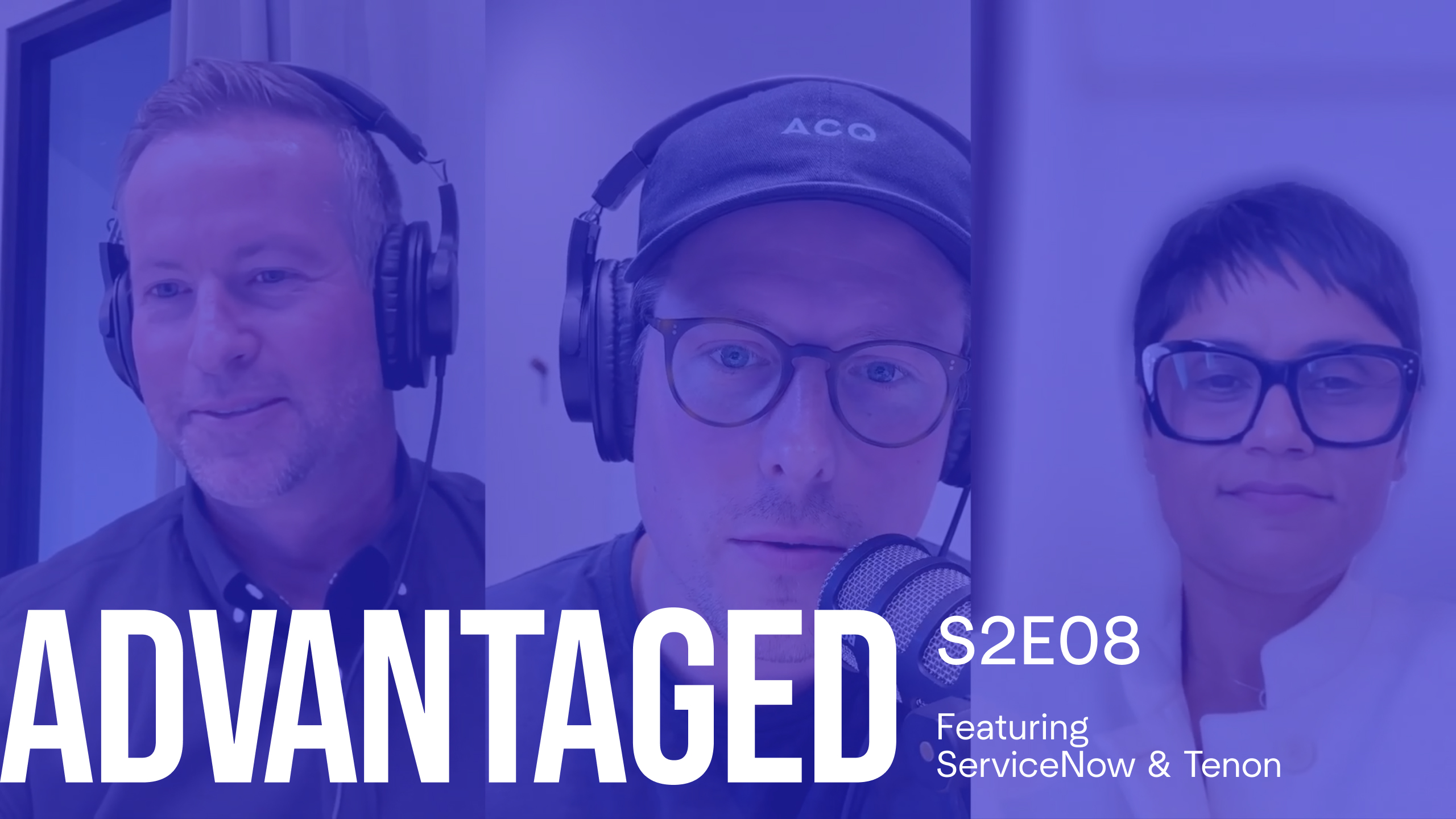









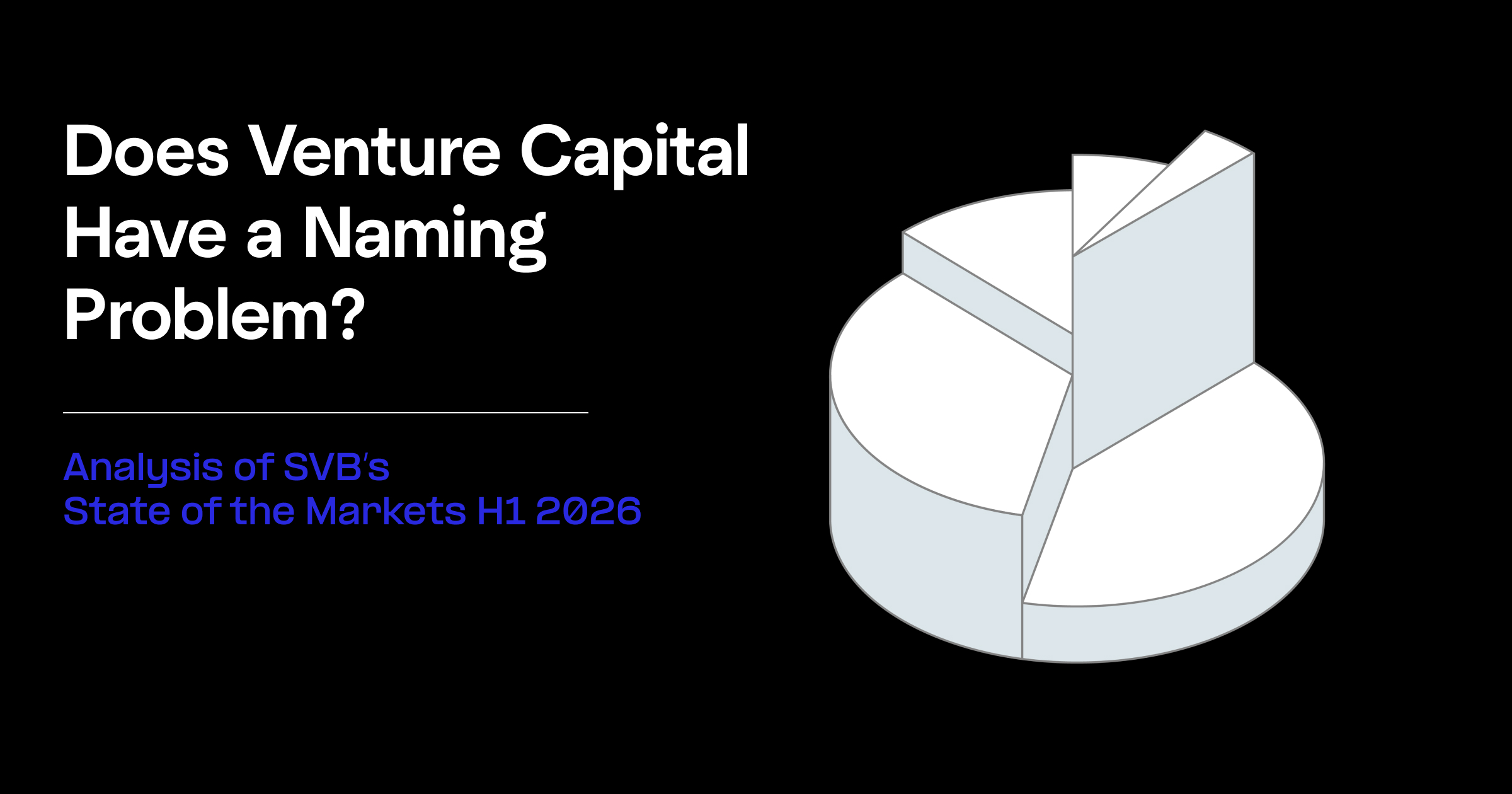
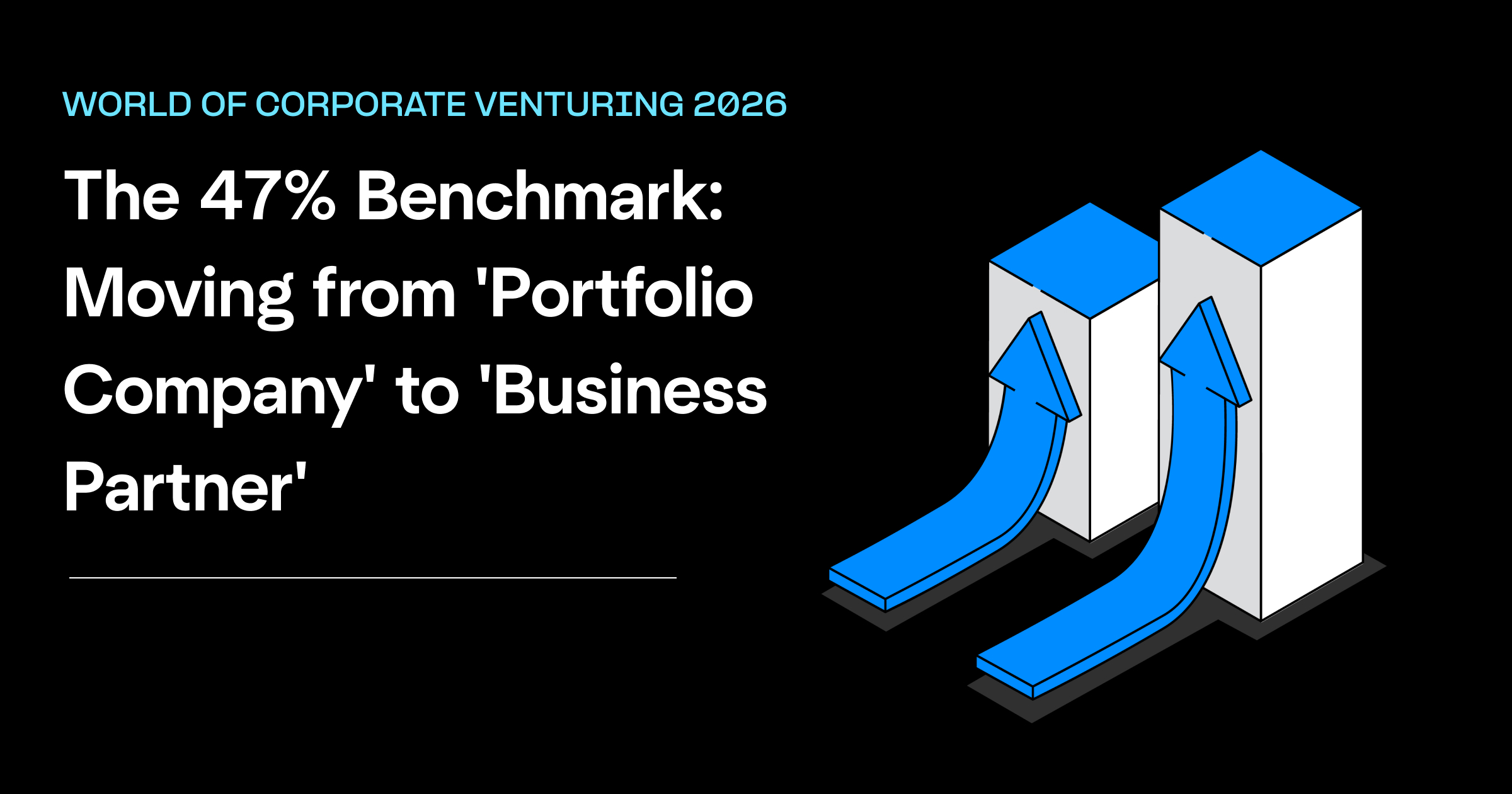

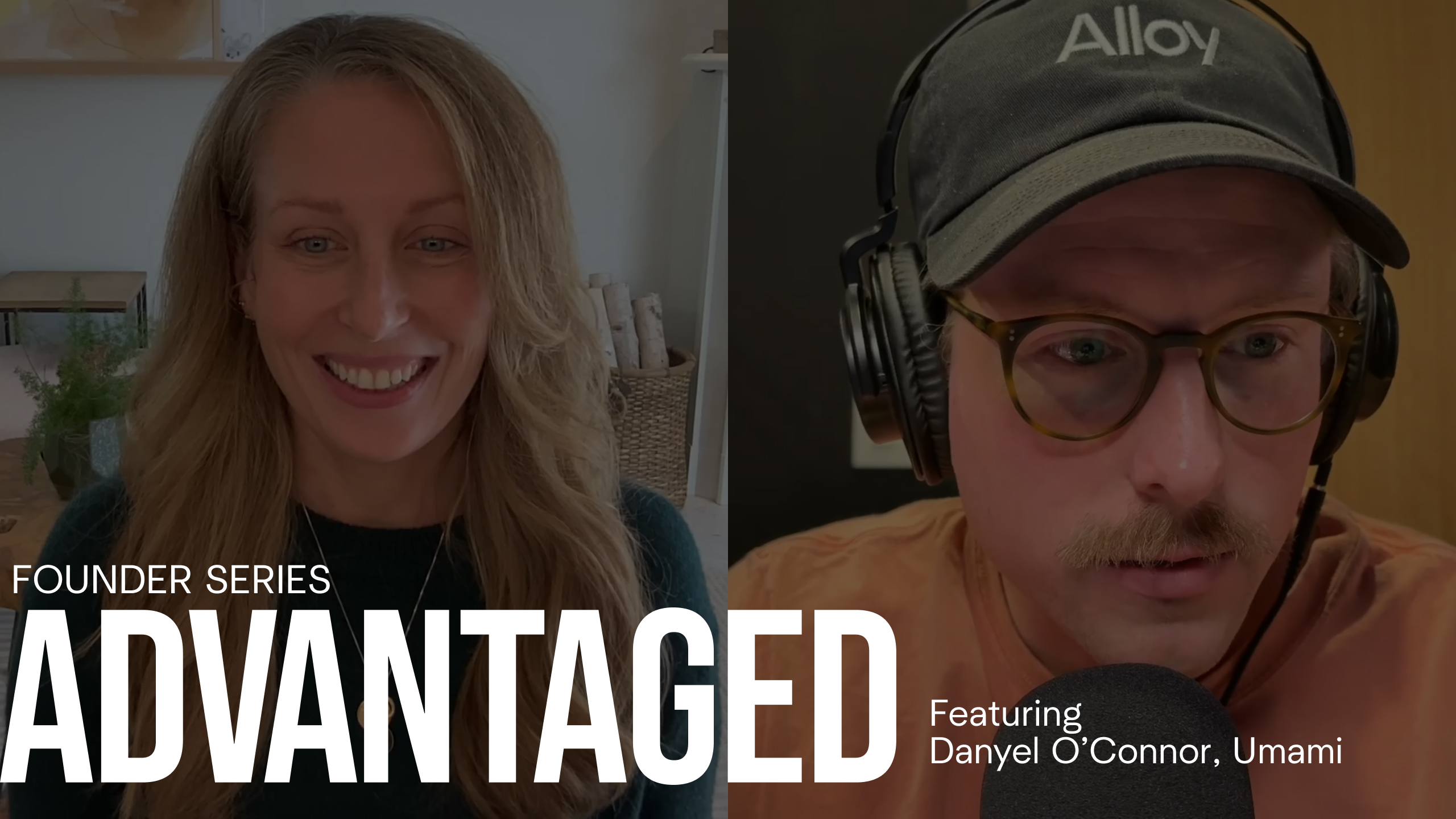

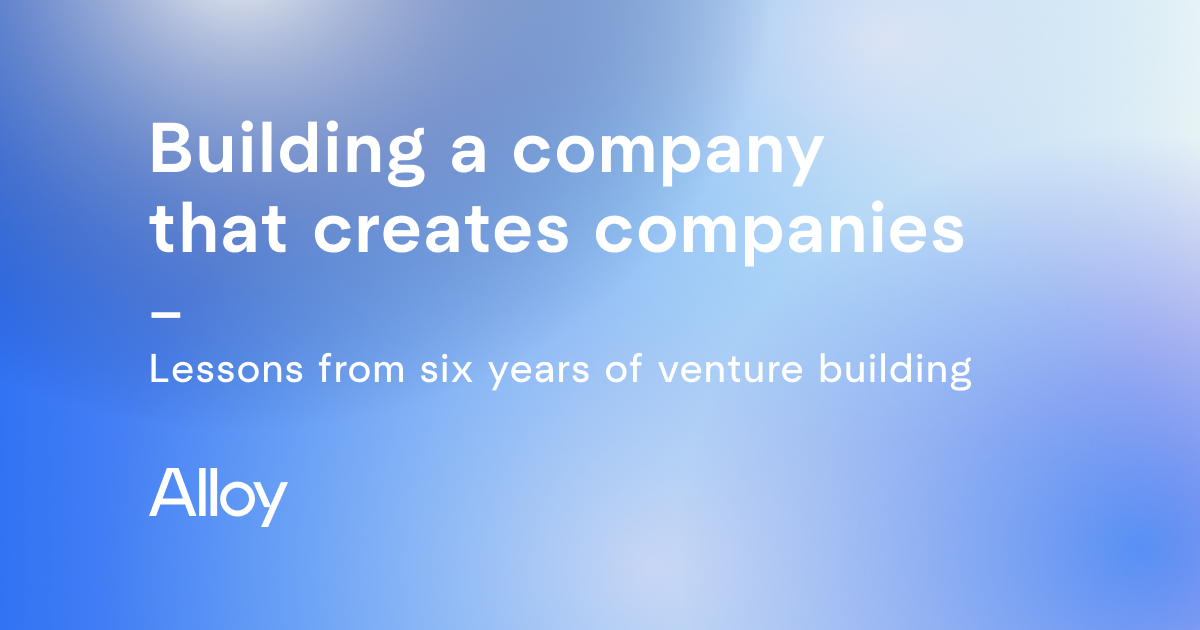
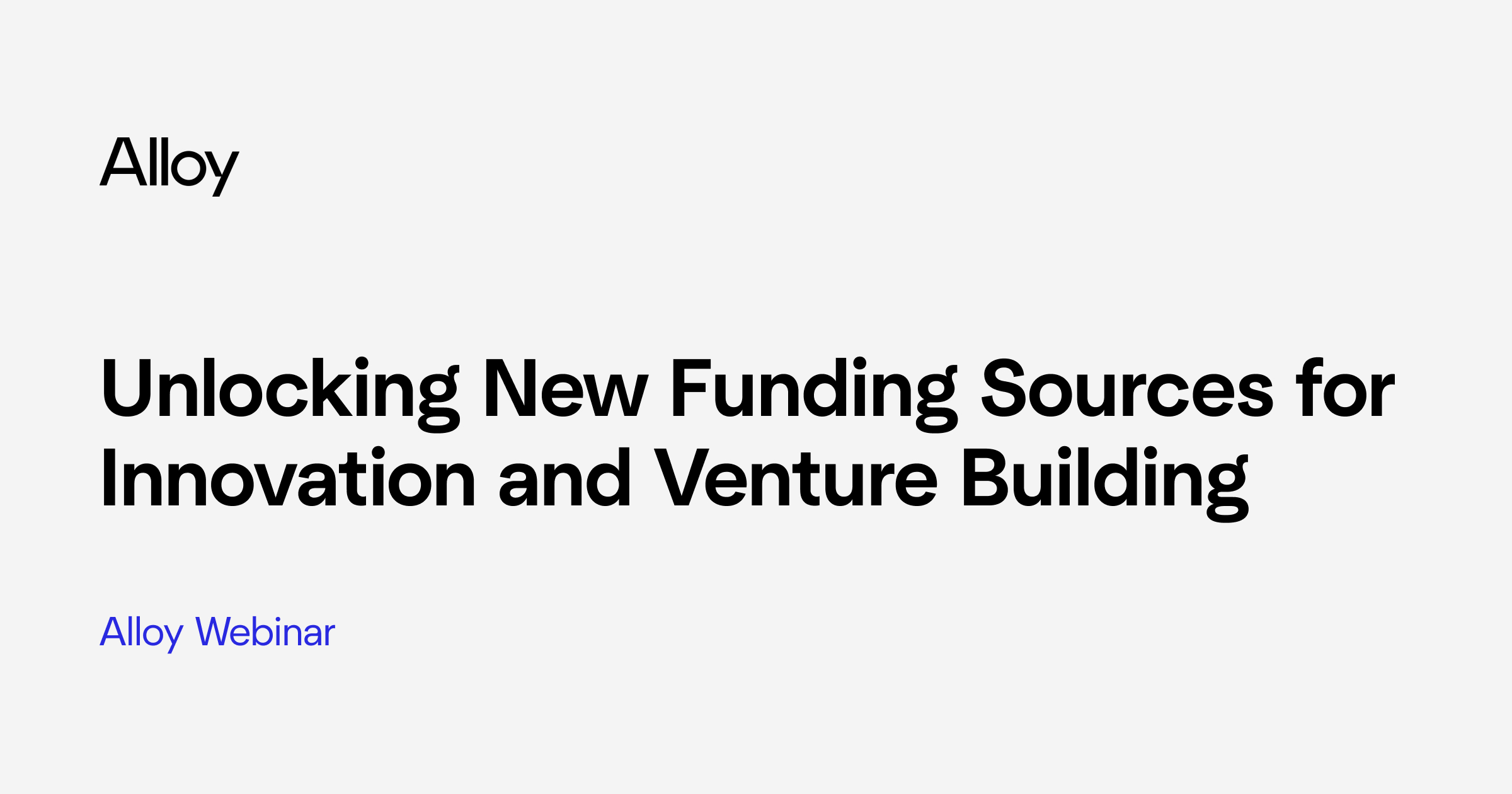

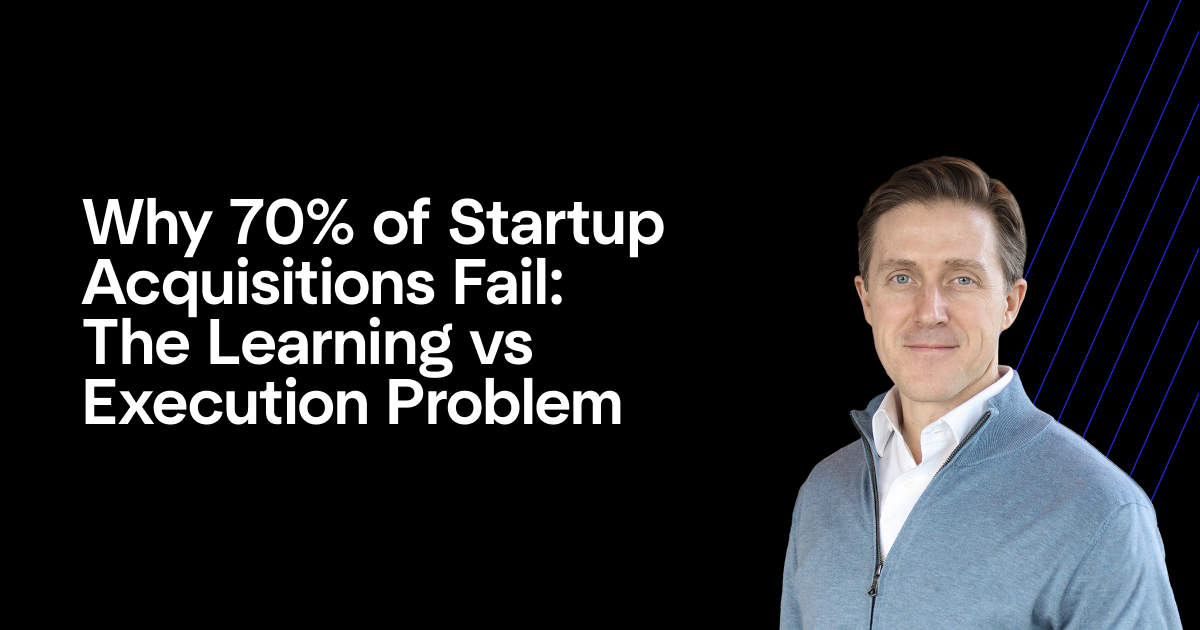


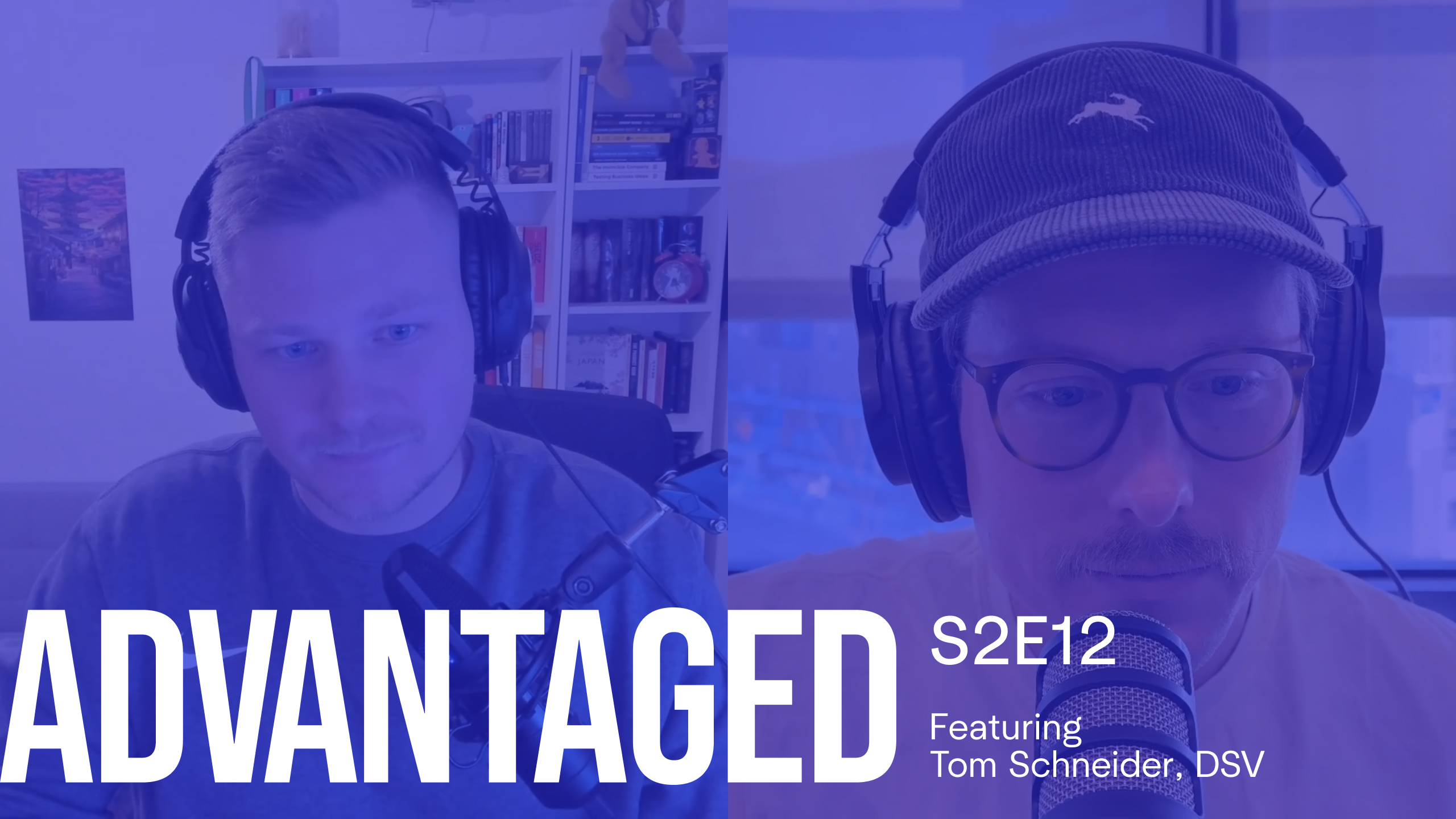
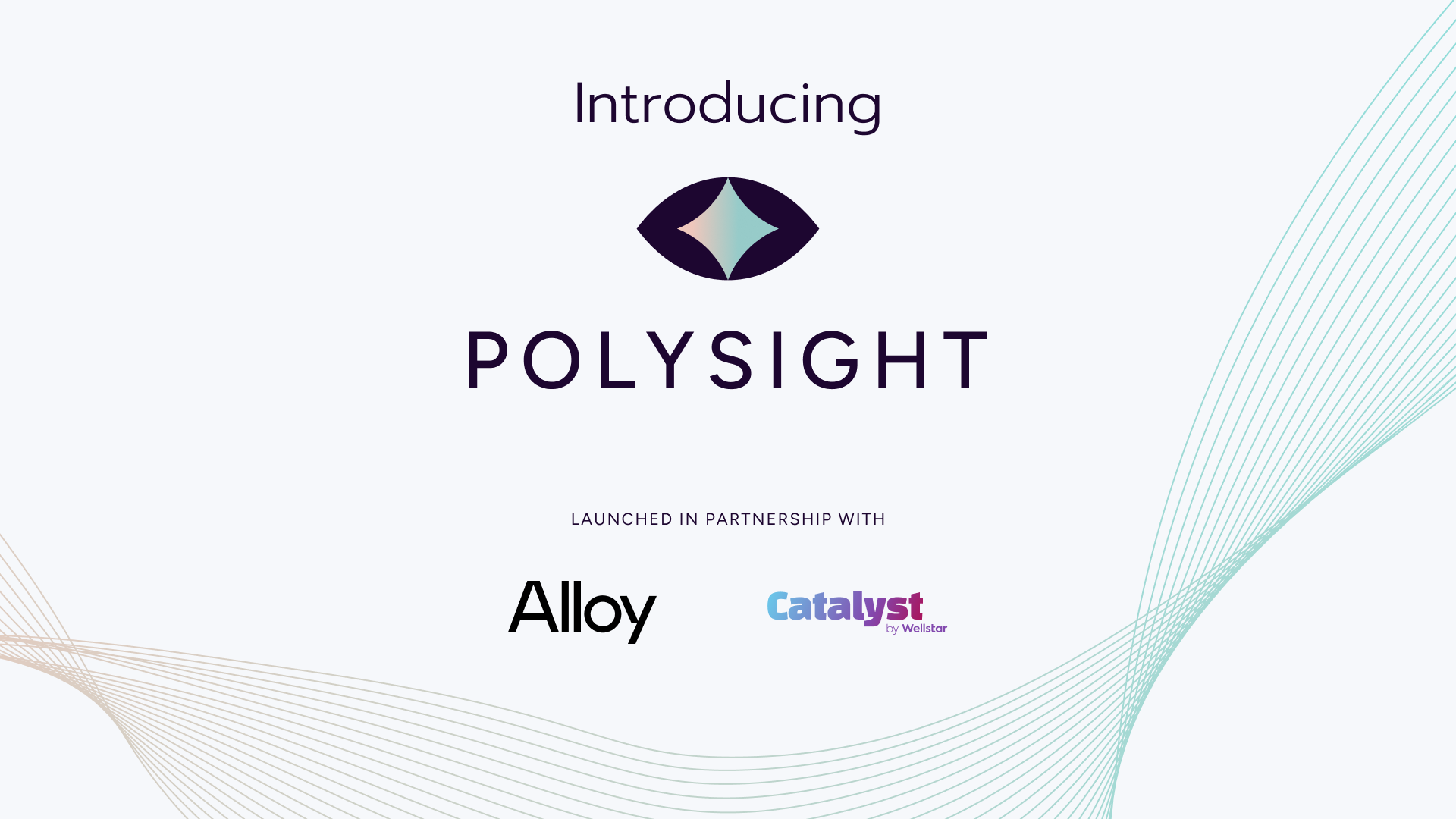
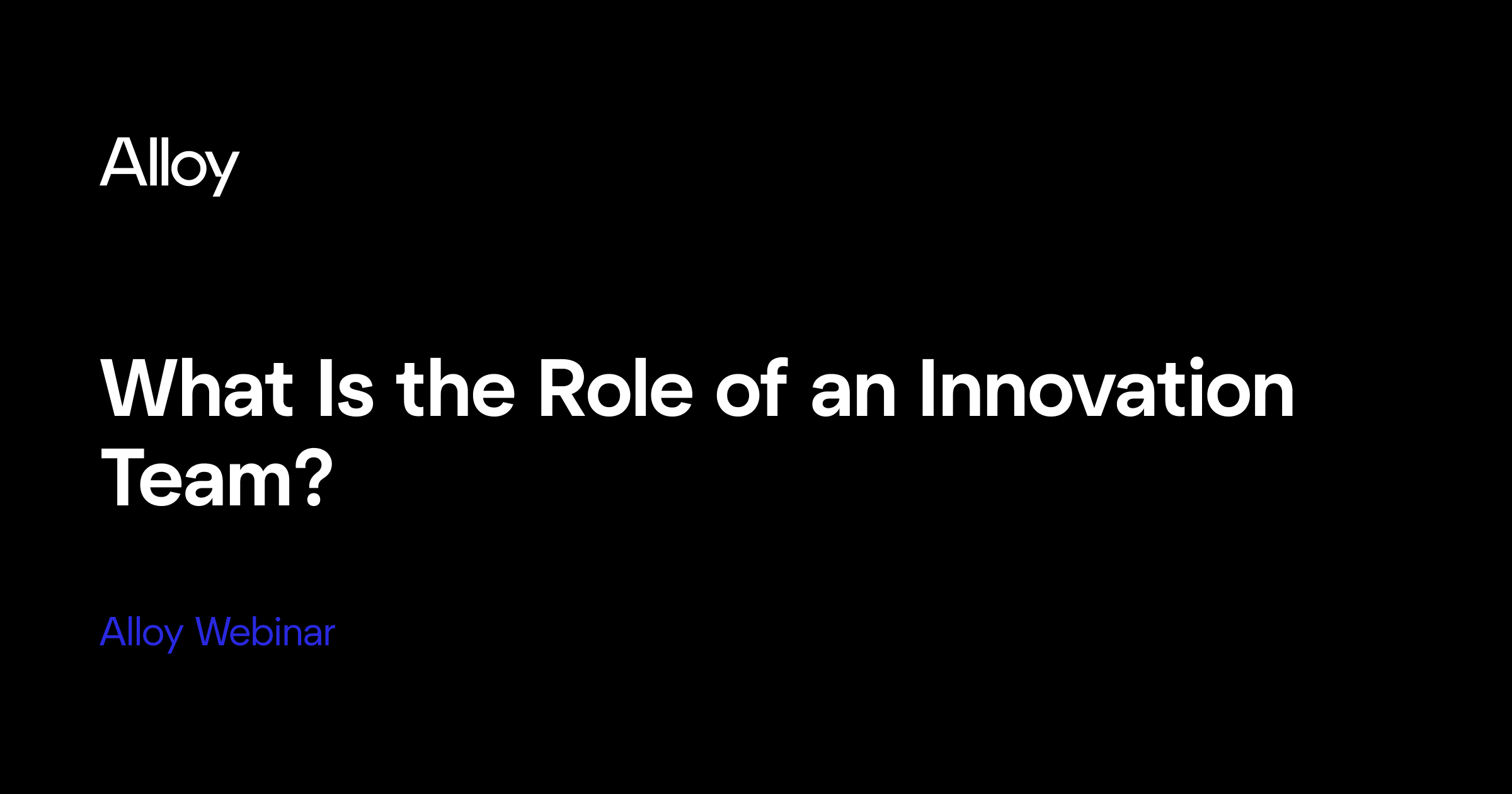
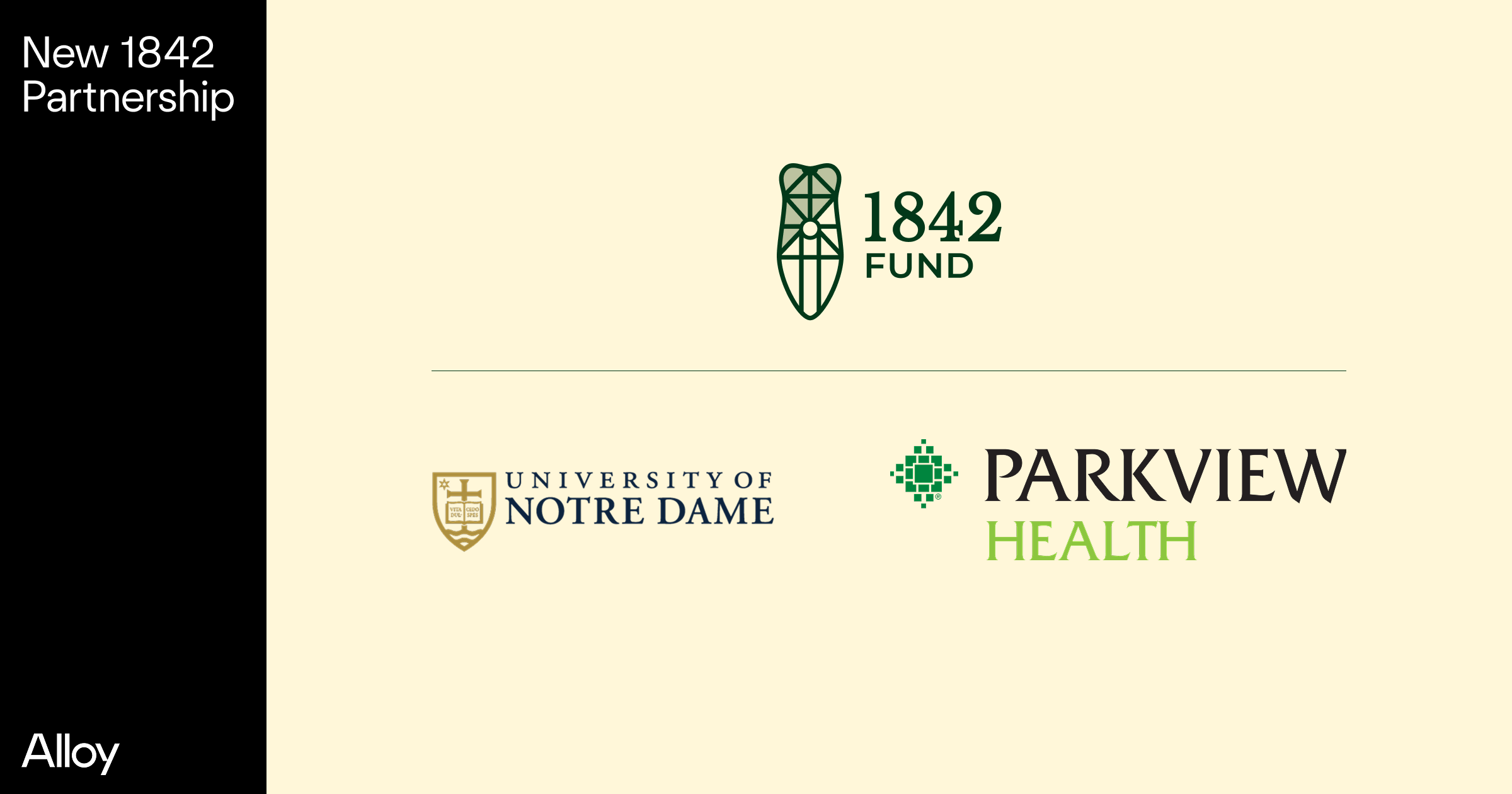
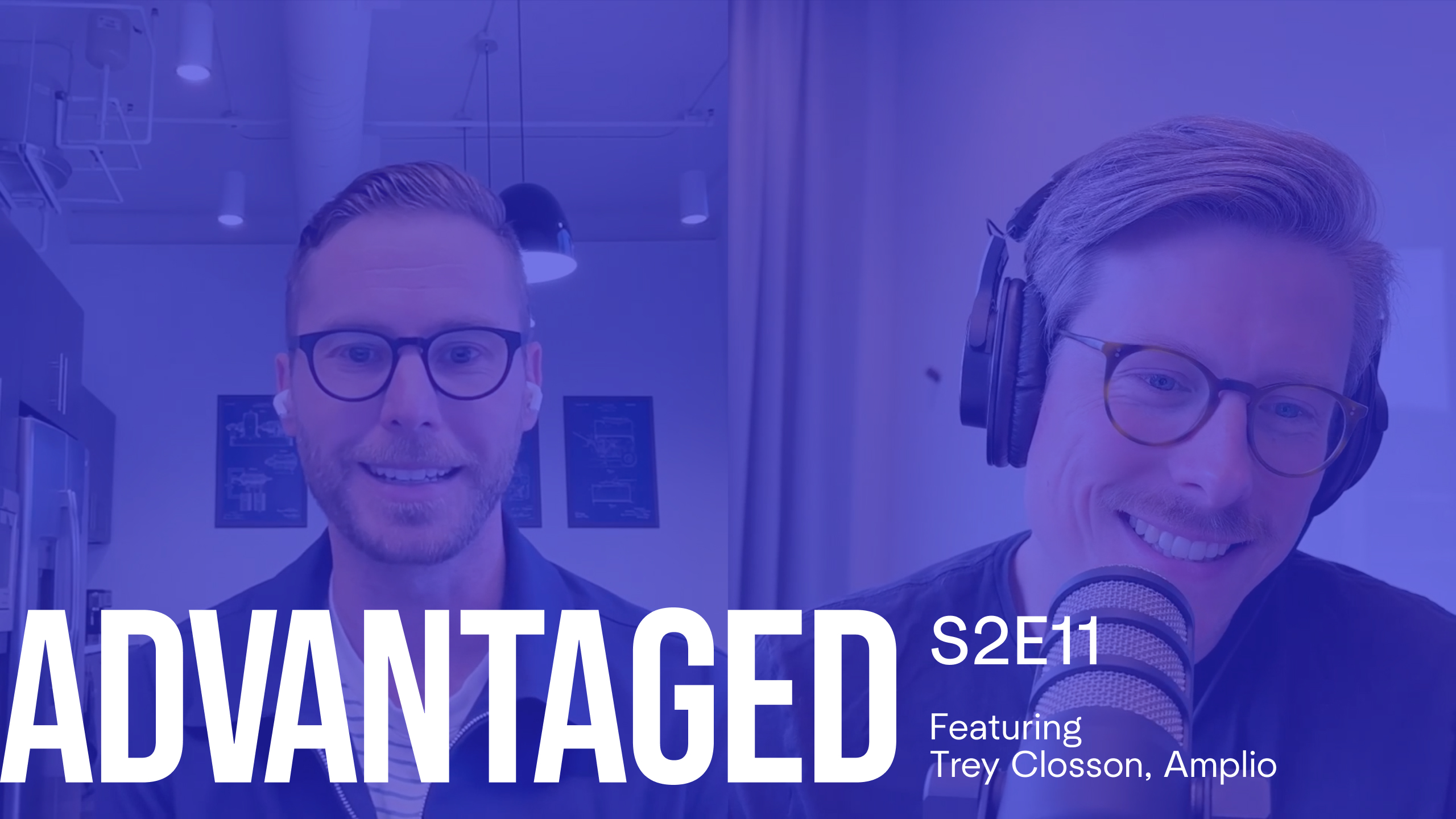
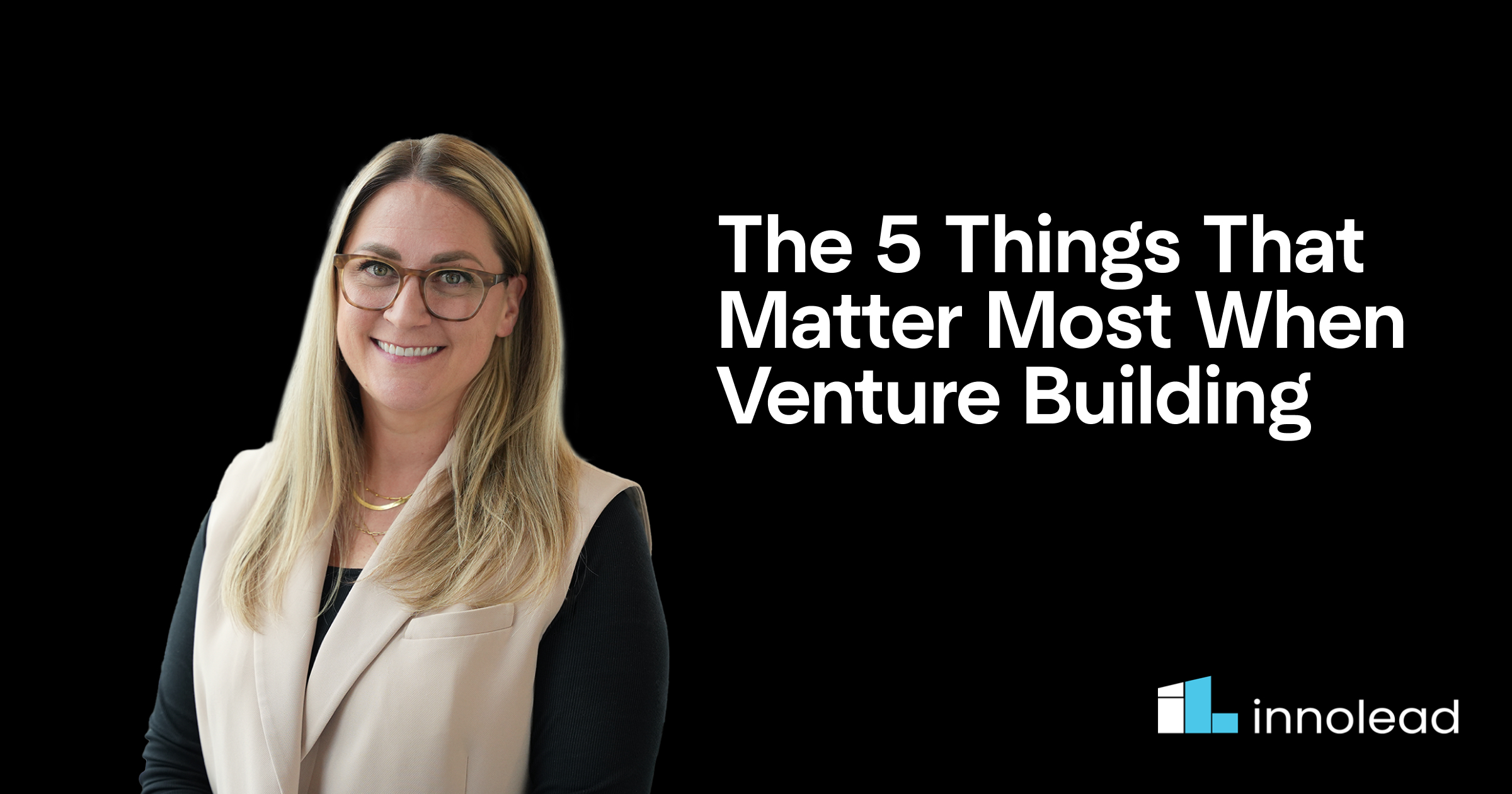

.png)
